- Affärsnyheter
- Alternativ hälsa
- Amerikansk fotboll
- Andlighet
- Animering och manga
- Astronomi
- Barn och familj
- Baseball
- Basket
- Berättelser för barn
- Böcker
- Brottning
- Buddhism
- Dagliga nyheter
- Dans och teater
- Design
- Djur
- Dokumentär
- Drama
- Efterprogram
- Entreprenörskap
- Fantasysporter
- Filmhistoria
- Filmintervjuer
- Filmrecensioner
- Filosofi
- Flyg
- Föräldraskap
- Fordon
- Fotboll
- Fritid
- Fysik
- Geovetenskap
- Golf
- Hälsa och motion
- Hantverk
- Hinduism
- Historia
- Hobbies
- Hockey
- Hus och trädgård
- Ideell
- Improvisering
- Investering
- Islam
- Judendom
- Karriär
- Kemi
- Komedi
- Komedifiktion
- Komediintervjuer
- Konst
- Kristendom
- Kurser
- Ledarskap
- Life Science
- Löpning
- Marknadsföring
- Mat
- Matematik
- Medicin
- Mental hälsa
- Mode och skönhet
- Motion
- Musik
- Musikhistoria
- Musikintervjuer
- Musikkommentarer
- Näringslära
- Näringsliv
- Natur
- Naturvetenskap
- Nyheter
- Nyhetskommentarer
- Personliga dagböcker
- Platser och resor
- Poddar
- Politik
- Relationer
- Religion
- Religion och spiritualitet
- Rugby
- Så gör man
- Sällskapsspel
- Samhälle och kultur
- Samhällsvetenskap
- Science fiction
- Sexualitet
- Simning
- Självhjälp
- Skönlitteratur
- Spel
- Sport
- Sportnyheter
- Språkkurs
- Stat och kommun
- Ståupp
- Tekniknyheter
- Teknologi
- Tennis
- TV och film
- TV-recensioner
- Underhållningsnyheter
- Utbildning
- Utbildning för barn
- Verkliga brott
- Vetenskap
- Vildmarken
- Visuell konst
China in the World
Carnegie China’s China in the World podcast is a series of conversations between Chinese and international experts on China’s foreign policy, China’s international role, and China’s relations ...
210 avsnitt • Längd: 30 min • Månadsvis
Om podden
Carnegie China’s China in the World podcast is a series of conversations between Chinese and international experts on China’s foreign policy, China’s international role, and China’s relations with the world.
The podcast China in the World is created by Carnegie China. The podcast and the artwork on this page are embedded on this page using the public podcast feed (RSS).
Avsnitt
China and Myanmar
What are China’s interests in Myanmar? In this episode, Dr. Ian Chong speaks with Dr. Moe Thuzar and Dr. Shona Loong on the role China is playing in the ongoing civil war in Myanmar. They also discuss how Beijing relates to the interested parties inside and outside of Myanmar, and the cyber crime industry that has significant implications on China-Myanmar relations.
Dr. Ian Chong is a nonresident scholar at Carnegie China, where he examines U.S.-China dynamics in Southeast Asia and the broader Asia-Pacific. He is also an associate professor of political science at the National University of Singapore.
Dr. Moe Thuzar is a senior fellow at the ISEAS-Yusof Ishak Institute where she coordinates the Myanmar Studies Program.
Dr. Shona Loong is a senior scientist in political geography at the University of Zurich, and associate fellow with the Southeast Asian Politics and Foreign Policy program at the International Institute for Strategic Studies.
Southeast Asia and the Belt and Road Initiative
What role has China's Belt and Road Initiative (BRI) played in Southeast Asia so far? In this episode, Dr. Ian Chong holds an in-depth dialogue with Dr. Ngeow Chow Bing, another nonresident scholar at Carnegie China; and Muhammad Habib, a researcher at the Department of International Relations, Centre for Strategic and International Studies (CSIS) Indonesia. The three scholars discuss how the BRI has affected perceptions of China in Southeast Asia and the China-Southeast Asia relations.
Dr. Ian Chong is a nonresident scholar at Carnegie China, where he examines U.S.-China dynamics in Southeast Asia and the broader Asia-Pacific. He is also an associate professor of political science at the National University of Singapore.
Dr. Ngeow Chow Bing is a nonresident scholar at Carnegie China. He focuses on China's relations with Southeast Asian countries.
Muhammad Habib is a researcher at the Department of International Relations, Centre for Strategic and International Studies (CSIS) Indonesia. His main research areas include international political economy, Indonesia-U.S. bilateral relations, and Indonesia-China bilateral relations.
Southeast Asia and Disinformation
What is the landscape of misinformation and disinformation in Southeast Asia, especially regarding the campaigns involving China? In this episode, Dr. Ian Chong hosts a conversation with Sutawan Chanprasert, founder of DigitalReach, and Ibrahim Suffian, director of Merdeka Center, on the disinformation campaigns observed in Southeast Asia, and how to address it.
Dr. Ian Chong is a nonresident scholar at Carnegie China, where he examines U.S.-China dynamics in Southeast Asia and the broader Asia-Pacific. He is also an associate professor of political science at the National University of Singapore.
Sutawan Chanprasert is a founder of the Bangkok-based organization DigitalReach, which explores the impact of technology on human rights in Southeast Asia.
Ibrahim Suffian is the director of Merdeka Center, a public opinion polling and political surveys organization in Kuala Lumpur, Malaysia.
Southeast Asia and Taiwan
In this episode of the China in the World podcast, Dr. Ian Chong speaks with Dr. Ratih Kabinawa, adjunct research fellow at the School of Social Sciences at the University of Western Australia, and Julio S. Amador III, executive director of the Philippine-American Educational Foundation, on Southeast Asia and Taiwan. The three scholars discuss how tensions over the Taiwan Strait affect Southeast Asia, and how the regional states and ASEAN look at the current dynamics.
Dr. Ian Chong is a nonresident scholar at Carnegie China, where he examines U.S.-China dynamics in Southeast Asia and the broader Asia-Pacific. He is also an associate professor of political science at the National University of Singapore.
Dr. Ratih Kabinawa is an adjunct research fellow at the School of Social Sciences at the University of Western Australia. She is a recipient of the Taiwan Ministry of Foreign Affairs 2024 Fellowship. Her research interests include transnational democracy, Taiwan’s international relations, Taiwan-Southeast Asia relations, and foreign policy of non-state actors. She is currently working on her first monograph on Taiwan’s use of informal diplomacy in Southeast Asia.
Julio S. Amador III is the executive director of the Philippine-American Educational Foundation, the interim president of the Foundation for the National Interest, and founder and trustee of the non-profit FACTS Asia. He previously worked in the Office of the President of the Philippines and served as deputy director-general of the Foreign Service Institute. He was a Fulbright scholar and was with the East-West Center in Washington.
Southeast Asia and the South China Sea
China in the World is back with a special series of five episodes focusing on Southeast Asian perspectives on China.
In the first episode, Ian Chong, a nonresident scholar at Carnegie China, discusses the South China Sea with Charmaine Willoughby, also a nonresident scholar at Carnegie China who focuses on alliances, maritime security, and security cooperation; and Chanintira "Neen" na Thalang, an associate professor at the Faculty of Political Science, Thammasat University in Bangkok, Thailand, whose research interests include Thai foreign policy, ethnic conflicts and regional security in Southeast Asia. The three scholars share their insights on the role China is playing in the South China Sea, and the wider implications of the ongoing disputes and their trajectories for Southeast Asia and beyond.
Xi and Biden Meet at APEC
In this episode of the China in the World podcast, Paul Haenle speaks with Dr. Ian Chong, non-resident scholar at Carnegie China and Associate Professor of Political Science at the National University of Singapore. The two experts discuss President Biden and Xi's upcoming meeting on the sidelines of the APEC Leaders' Meeting in San Francisco. The two also discuss the current state of U.S.-China relations and how the two powers are viewed from Southeast Asia as well as Dr. Chong's recent article published by Carnegie China, "Amid Contending Narratives, A Read on U.S. and PRC Messaging in Singapore." https://carnegieendowment.org/2023/11/08/amid-contending-narratives-read-on-u.s.-and-prc-messaging-in-singapore-pub-90942
Dr. Chong is a nonresident scholar at Carnegie China, where he examines U.S.-China dynamics in Southeast Asia and the broader Asia-Pacific. Chong is also an associate professor of political science at the National University of Singapore. He received his PhD from Princeton University in 2008 and previously taught at the Hong Kong University of Science and Technology. His research covers the intersection of international and domestic politics, with a focus on the externalities of major power competition, nationalism, regional order, security, contentious politics, and state formation. He also works on U.S.-China relations, security and order in Northeast and Southeast Asia, cross-strait relations, and Taiwan’s politics.
10 Years of US-China Trade Relations
To commemorate the 10th anniversary of the China in the World podcast, Carnegie China is launching a series of lookback episodes, using audio clips from previous interviews to put current international issues in context. For the fifth and final episode in this series, the podcast looks back on 10 years of US-China trade relations.
US-China trade ties have undergone significant changes since the launch of the China in the World podcast. In March 2012, the United States, the EU, and Japan filed a dispute at the World Trade Organization over China’s quota on exporting rare earth metals. That same year, China’s trade surplus with the U.S. reached an all-time high of $315 billion. In 2015, China became the largest bilateral trade partner of the U.S., surpassing Canada for the first time. In March 2018, the Trump administration announced sweeping tariffs on $50 billion worth of Chinese imports, kicking off the U.S.-China trade war. After bilateral negotiations with Beijing broke down in May 2019, the Trump administration raised tariffs from 10 to 25 percent on $200 billion worth of Chinese goods. Finally, in January 2020, the “Phase one” trade deal was signed, relaxing some U.S. tariffs and requiring China to import an additional $200 billion worth of American goods for the next two years. After coming to office in January 2021, the Biden administration maintained the Section 301 tariffs on China and, at the end of 2021, U.S. officials stated that China failed to meet its commitments under the Phase 1 trade deal. In 2023, Treasury Secretary Janet Yellen and Commerce Secretary Gina Raimondo travelled to China and agreed to establish working groups on commercial and financial issues. However, negotiations over structural economic issues such as subsidies, investment restrictions, and non-tariff barriers remain at a standstill. This episode helps shed light on the evolution of U.S.-China trade relations over the past 10 years.
Vietnam’s Multialignment Strategy
In this episode of the China in the World podcast, Paul Haenle speaks with Dr. Huong Le Thu, non-resident fellow with the Southeast Asia Program at the Center for Strategic and International Studies. The two discuss Dr. Le Thu’s recent Foreign Affairs article on Vietnam’s “multialignment” strategy, the recent announcement of the U.S.-Vietnam Comprehensive Strategic Partnership, China-Vietnam relations, the 10th anniversary of the Belt and Road Initiative, and how Southeast Asia is responding to China's Global Security Initiative, Global Development Initiative, and Global Civilization Initiative.
Dr. Huong Le Thu, non-resident fellow with the Southeast Asia Program at the Center for Strategic and International Studies. Most recently, she was a senior analyst at the Australian Strategic Policy Institute (ASPI) and a member of the advisory board of the Griffith Asia Institute (GAI) at Griffith University. Her research interests include Vietnam’s defense and foreign policy, Southeast Asia’s security, ASEAN regionalism, and China-Southeast Asia relations.
China’s Law of the Sea
Amid renewed tensions in the South China Sea, Paul Haenle speaks with Dr. Isaac Kardon, Senior Fellow in the Carnegie Endowment’s Asia Program, about his new book, China’s Law of the Sea: The New Rules of Maritime Order. The two discuss Kardon’s book, China’s approach to international maritime law, the China-Philippines maritime standoff, and more.
Isaac Kardon is a Senior Fellow in the Carnegie Endowment’s Asia Program. Isaac was formerly assistant professor at the U.S. Naval War College, China Maritime Studies Institute, where he researched China’s maritime affairs, and taught naval officers and national security professionals about PRC foreign and security policy. Isaac’s scholarship has centered on China’s development of maritime power, with research on China’s maritime disputes and law of the sea issues, global port development, and PLA overseas basing. His new book, China’s Law of the Sea: The New Rules of Maritime Order (Yale, 2023), can be purchased here: https://www.amazon.com/Chinas-Law-Sea-Rules-Maritime/dp/0300256477.
What Comes Next for U.S.-China Relations?
In June, U.S. Secretary of State Antony Blinken concluded his first visit to China since the Biden administration entered office, and in July, Treasury Secretary Yellen and Climate Envoy John Kerry travelled to China to engage in discussions with Chinese officials. As the United States and China begin to restart high-level dialogues, there continue to be many unaddressed issues in the relationship, from trade to technology. Will the two sides be able to reopen military dialogues? Can they manage tensions over Taiwan? How will the bilateral relationship evolve ahead of the 2024 U.S. election? On this live Twitter Spaces event, Paul Haenle discusses all these issues and more with Evan Medeiros, Dennis Wilder, Amanda Hsiao, and Chong Ja Ian.
The 200th Episode: Interviews with Carnegie Scholars
For the 200th episode of the China in the World podcast, Carnegie China looks back on interviews conducted over the last 10 years, highlighting discussions with scholars and experts from the Carnegie Endowment for International Peace. Over the last 10 years, Paul Haenle has hosted dozens of conversations, conducted both online and at Carnegie's office in Beijing, with Carnegie scholars from across Carnegie’s six global centers, covering topics ranging from the U.S.-China relations and China-Russia relations to China-India relations and China-EU relations.
The Ukraine War and China-Russia Relations
After more than one year of conflict, the Russia-Ukraine War continues to drag on. Last week, China’s envoy, Li Hui, traveled throughout European capitals to discuss the potential for a “political settlement” of the Ukraine crisis. Meanwhile, Kiev has launched a counteroffensive in five areas along the front in Donetsk. In the background, China-Russia diplomatic, economic, and military relations remain robust. How is the Ukraine war impacting China-Russia relations? Are there limits to the China-Russia partnership? Will relations between Moscow and Beijing grow more or less asymmetrical in the years to come?
This China in the World podcast was recorded as a live Twitter Spaces discussion featuring Alexander Gabuev, Amy Chew, and Paul Haenle on the state of the Ukraine War and China-Russia relations.
China’s Rising Influence in the Middle East
Although traditionally focused on economic engagement in the Middle East, in recent months China has indicated a greater willingness to engage in regional conflict mediation. The Saudi-Iran normalization agreement, brokered in Beijing, speaks to China’s growing involvement in regional political and security issues. Chinese officials have also expressed interest in de-escalating the Israel-Palestine crisis and renewing the Iran nuclear deal. Meanwhile, the United States appears to be shifting its strategic focus toward the Indo-Pacific and Eastern Europe. Will China replace the United States as the leading outside power in the Middle East? What role can Beijing play in meditating regional disputes? How are Middle Eastern states responding to rising U.S.-China rivalry?
In this live recording of the China in the World podcast, Paul Haenle moderated a discussion with Maha Yahya, Yu Jie, and Benjamin Ho on the key issues in China-Middle East relations. This panel is the fifth of the Carnegie Global Dialogue Series 2022-2023 and is also available to be watch at CarnegieChina.org.
https://carnegieendowment.org/2023/06/08/china-s-rising-influence-in-middle-east-event-8107
Empires of Ideas: Higher Education in China and the United States
In this episode of the China in the World podcast, Paul Haenle speaks with William C. Kirby, T.M. Chang Professor of China Studies and Spangler Family Professor of Business Administration at Harvard University. The discussion highlights Dr. Kirby’s new book, Empires of Ideas: Creating the Modern University from Germany to America to China (Harvard University Press: 2022). Kirby’s book chronicles two revolutions in higher education over the last two centuries–the birth of the research university and its integration with the liberal education model–drawing illuminating comparisons between notable universities in the United States, Germany, and China. Haenle and Kirby also discuss current events such as the Biden administration’s economic policy toward China, articulated in recent speeches by Treasury Secretary Janet Yellen and National Security Advisor Jake Sullivan, as well as rising U.S.-China tensions over Taiwan.
William C. Kirby is the T. M. Chang Professor of China Studies at Harvard University and Spangler Family Professor of Business Administration at the Harvard Business School. He is a Harvard University Distinguished Service Professor. He serves as Chairman of the Harvard China Fund, the University's academic venture fund for China, and Faculty Chair of the Harvard Center Shanghai, Harvard's first University-wide center located outside the United States. A historian of modern China, Kirby's work examines contemporary China's business, economic, and political development in an international context. He writes and teaches on the growth of modern companies in China (Chinese and foreign; state-owned and private); Chinese corporate law and company structure; business relations across Greater China (PRC, Taiwan, Hong Kong); and China's relations with the United States and Europe.
Empire of Ideas can be purchased here: https://www.hup.harvard.edu/catalog.php?isbn=9780674737716
The China Policy George W. Bush Handed to Barack Obama
U.S.-China relations and East Asian affairs have evolved significantly over the last two decades. Nonetheless, many of the same questions continue to challenge policymakers in Washington. How should the United States grapple with a rising China? How should it engage militarily and economically in Asia? How does China factor into the United States’ Asia policy?
In a new book, Hand-Off: The Foreign Policy George W. Bush Passed to Barack Obama, National Security Council experts from the Bush administration comment on declassified transition memoranda that provide a firsthand look at the foreign policy the Bush administration turned over to President Obama. Join Paul Haenle as he sits down with three other members of the Bush administration’s National Security Council—Michael J. Green, Meghan O'Sullivan, and Faryar Shirzad—to discuss the evolution of U.S. policy toward China and East Asia.
China-EU Relations One Year into the Ukraine War
As the war in Ukraine drags on, China-EU relations face mounting uncertainties. Beijing has attempted to tread a fine line between maintaining its strategic partnership with Russia, while mitigating downward pressure on relations with the European Union. China’s 12-point position paper is the latest sign of Beijing’s attempt to portray itself as a neutral party to the conflict in Ukraine. On the other hand, China’s failure to use its influence on Russia to respect the UN Charter has cast doubt in Brussels on the sincerity of Beijing’s plan. Despite their differences, China and the EU maintain common interests in promoting global trade and addressing challenges like climate change. How is Beijing’s position on the Ukraine war impacting China-EU relations? Can Brussels and Beijing cooperate on transnational issues, while managing their differences? What role can Europe play in rising U.S.-China competition?
Paul spoke with Dan Baer, senior vice president for policy research and director of the Europe Program at the Carnegie Endowment for International Peace, Chan Heng Chee, Ambassador-at-Large with the Ministry of Foreign Affairs, Singapore and Professor at the Lee Kuan Yew Centre, and Yawei Liu, senior advisor on China at The Carter Center and an adjunct professor of political science at Emory University. This panel is the fourth of the Carnegie Global Dialogue Series 2022-2023 and is available to be viewed on the Carnegie Endowment's website. https://carnegieendowment.org/2023/04/19/china-eu-relations-one-year-into-ukraine-war-event-8073
China Policy During the George W. Bush Administration
On this joint episode of the China in the World podcast and the Asia Chessboard, Jude Blanchette interviews Paul Haenle and two of his former White House National Security Council (NSC) colleagues, Michael Green and Faryar Shirzad, about U.S. policy toward China during the George W. Bush administration. The three experts begin by recapping economic and security ties between the United States and China at the outset of the Bush administration in 2001, discussing the administration’s China policy and the legacy of its approach to Asia more broadly. The conversation then turns to the broader implications of trends in U.S.-China economic relations, which are increasingly characterized by heightened government controls and expectations of loyalty among multinational firms. Next, they emphasize the importance of placing the U.S.-China relationship on better footing and improving communication. They observe how the Bush administration’s efforts to shape the geopolitical environment around China have borne out today and conclude with a call for renewed U.S. pursuit of economic diplomacy.
The conversation touches on the China section of the recently published Hand-Off: The Foreign Policy George W. Bush Passed to Barack Obama (2023), an edited volume with 30 commentaries and newly declassified transition memoranda, made public for the first time.
The Asia Chessboard podcast: https://www.csis.org/podcasts/asia-chessboard/crucial-decade-china-policy-during-george-w-bush-administration
Order a copy of Hand-Off: The Foreign Policy George W. Bush Passed to Barack Obama: https://rowman.com/ISBN/9780815739777/Hand-Off-The-Foreign-Policy-George-W-Bush-Passed-to-Barack-Obama
10 Years of The North Korea Challenge
To commemorate the 10th anniversary of the China in the World podcast, Carnegie China is launching a series of lookback episodes, using clips from previous interviews to put current international issues in context. For the third episode in this series, the podcast looks back on 10 years of dealing with the North Korea challenge.
Developments on the Korean Peninsula have undergone major changes since the launch of the China in the World podcast. In 2011, Kim Jong-un succeeded his father, Kim Jong-il, as supreme leader of North Korea, beginning his tenure with a series of internal purges and a more assertive military posture. While the Obama administration was able to reach a moratorium agreement with North Korea on nuclear and long-range missile tests in February 2012, the agreement was quickly broken in April 2012 with an attempted space launch of the Unha-3. Between 2013 and 2016, North Korea held three nuclear tests, followed in 2017 by North Korea’s first successful test of an intercontinental ballistic missile capable of striking the United States, the Hwasong-15. A subsequent “war of words” between Kim Jong-un and Donald Trump resulted in the first meeting between a sitting U.S. president and a North Korean leader in Singapore in 2018, followed by Kim’s “self-imposed” moratorium on nuclear and long-range tests, which was broken in February 2022. Since the Biden administration entered office, North Korea has conducted over 40 missile tests, including 5 ICBM launches, while spurning unconditional diplomatic overtures from Washington. This episode helps shed light on the evolution of geopolitics on the Korean Peninsula over the past 10 years.
The State of Southeast Asia in 2023
The ASEAN Studies Centre at ISEAS – Yusof Ishak Institute recently released its State of Southeast Asia 2023 Survey, which gauges the views and perceptions of Southeast Asians on geopolitical developments affecting the region over the preceding year. The 2023 survey reveals that Southeast Asia’s top preoccupations include recessionary pressures, potential military tensions, and a ‘slow and ineffective’ ASEAN. China continues to be regarded as the most influential economic and political power in the region, while the US has sharpened its edge over China in the event of a "forced choice." Japan remains Southeast Asia's most trusted major power. In this episode of the China in the World podcast, Paul Haenle speaks with Ms. Sharon Seah, Senior Fellow and Coordinator of the ASEAN Studies Centre, about the findings of the 2023 survey.
Ms. Sharon Seah is a Senior Fellow and Coordinator of the ASEAN Studies Centre Coordinator and the Climate Change in Southeast Asia Programme at the ISEAS-Yusof Ishak Institute. Prior to academia, Ms. Seah spent 15 years in the Ministry of Foreign Affairs and the National Environment Agency of Singapore. Her research interests include ASEAN, multilateralism, rule of law, and climate change.
The State of Southeast Asia 2023 Survey can be found here: https://www.iseas.edu.sg/articles-commentaries/state-of-southeast-asia-survey/the-state-of-southeast-asia-2023-survey-report-2/#:~:text=The%20State%20of%20Southeast%20Asia%202023%20Survey%20conducted%20by%20the,'slow%20and%20ineffective'%20ASEAN.
10 Years of China-Russia Relations
To commemorate the 10th anniversary of the China in the World podcast, Carnegie China is launching a series of lookback episodes, using clips from previous interviews to put current international issues in context. For the second episode in this series, the podcast looks back on ten years of China-Russia relations, one year into the war in Ukraine.
China-Russia relations have evolved significantly since the launch of the China in the World podcast. In 2014, Russia announced its annexation of Crimea, which at the time was viewed with ambivalence in China. While Beijing abstained from the UN Security Council resolution to invalidate the 2014 Crimean referendum, China simultaneously criticized the Western sanctions regime imposed on Russia. Over the course of the following 10 years, Moscow and Beijing gradually expanded their economic, diplomatic, and security exchanges to the point where, today, many view the China-Russia relationship as the strongest it has been since before the Sino-Soviet split in the 1960s. This episode helps shed light on how the China-Russia relationship evolved throughout Xi Jinping’s first decade in power, and during the lead-up to Russia’s full-scale invasion of Ukraine on February 24, 2022.
Hand-Off: The China Policy George W. Bush Passed to Barack Obama
On this joint episode of the China in the World podcast and the U.S.-China Nexus podcast, Eleanor Albert interviews Paul Haenle and two of his former National Security Council (NSC) colleagues, Dennis Wilder and Faryar Shirzad, about U.S. policy toward China during the George W. Bush administration. The three experts assess president Bush’s approach to China and the strategic perspective that guided U.S. engagement with Beijing as well as its hedging strategy against the prospect of a more ambitious China. In many respects, Haenle, Shirzad, and Wilder find that the Bush administration's economic and security initiatives served as building blocks for the United States’ current strategy in the Indo-Pacific. The conversation touches on the China section of the recently published Hand-Off: The Foreign Policy George W. Bush Passed to Barack Obama (2023), an edited volume with 30 commentaries and newly declassified transition memoranda, made public for the first time.
The U.S.-China Nexus podcast: https://uschinadialogue.georgetown.edu/podcasts/hand-off-the-china-policy-george-w-bush-passed-to-barack-obama
Order a copy of Hand-Off: The Foreign Policy George W. Bush Passed to Barack Obama: https://rowman.com/ISBN/9780815739777/Hand-Off-The-Foreign-Policy-George-W-Bush-Passed-to-Barack-Obama
China-Russia Relations One Year into the Ukraine War
Nearly twelve months ago, Russia launched a large-scale land invasion into Ukraine, upending the post-Cold War landscape in Europe. While the United States and NATO quickly coalesced around the defense of Ukraine, many countries in Asia and the developing world have carefully balanced their relations between Russia, Ukraine, and the West. China, for its part, has straddled several competing objectives–calling for an end to hostilities in Ukraine, yet maintaining a close strategic partnership with Russia.
Amid the war in Ukraine, trade between Beijing and Moscow is on the rise. Chinese and Russian diplomats maintain frequent contact. Bilateral military exercises continue unabated. Still, little evidence suggests that China is evading Western sanctions, and Chinese diplomats continue to express rhetorical support for territorial integrity in Ukraine. How is the Ukraine war impacting China-Russia relations? Are there limits to the China-Russia partnership? Will relations between Moscow and Beijing grow more or less asymmetric in the years to come?
Paul spoke with Alexander Gabuev, senior fellow at the Carnegie Endowment for International Peace, Li Mingjiang, associate professor and provost’s chair in international relations at S. Rajaratnam School of International Studies (RSIS), and Hoang Thi Ha, senior fellow and co-coordinator of the Regional Strategic and Political Studies Programme at ISEAS – Yusof Ishak Institute. This panel is the third of the Carnegie Global Dialogue Series 2022–2023 and is also available for online streaming.
https://carnegieendowment.org/2023/02/15/china-russia-relations-one-year-into-ukraine-war-event-8029
10 Years of U.S.-China Diplomacy
To commemorate the 10th anniversary of the China in the World podcast, Carnegie China is launching a series of lookback episodes, using clips from previous interviews to put current international issues in context. For the first episode in this series, the podcast looks back on ten years of U.S.-China diplomacy following the postponement of U.S. Secretary of State Antony Blinken’s planned visit to China in early 2023.
The China in the World podcast has spanned three U.S. administrations and covered several historic bilateral meetings, from Obama and Xi’s summit in Sunnylands, California in June 2013 to Trump and Xi’s meeting at Mar-a-Lago in April 2017. This episode gives a glimpse into the evolution of U.S.-China relations during a pivotal decade and sheds light on what can be accomplished during high-level meetings–what went right and what went wrong during past meetings.
The episode features clips from Paul Haenle’s interviews with over 20 American, Chinese, and international experts on foreign affairs: Stephen J. Hadley, former U.S. National Security Advisor, Xie Tao, Dean of the School of International Relations at Beijing Foreign Studies University, Yan Xuetong, Dean of the Institute of International Relations at Tsinghua University, Randall Schriver, former Assistant Secretary of Defense for Indo-Pacific Security Affairs, Evan Medeiros, Professor at Georgetown University and former advisor to President Obama, Zhao Hai, research fellow at the National Strategy Institute at Tsinghua University, Zha Daojiong, professor at the School of International Studies at Peking University, Ashley Tellis, senior fellow at the Carnegie Endowment, Danny Russel, former special assistant to President Obama and senior director for Asian Affairs on the National Security Council, Jake Sullivan, National Security Advisor and former senior fellow at the Carnegie Endowment, Cui Liru, former president of the China Institutes of Contemporary International Relations, Doug Paal, former vice president for studies at the Carnegie Endowment, Graham Allison, Director of the Belfer Center at the Harvard Kennedy School, William J. Burns, CIA Director and former President of the Carnegie Endowment, Susan Thornton, former Assistant Secretary for East Asian and Pacific Affairs at the Department of State, Evan Feigenbaum, Vice President for studies at the Carnegie Endowment, Jie Dalei, associate professor at the School of International Studies at Peking University, Da Wei, director of the Center for International Security and Strategy at Tsinghua University, Tong Zhao, senior fellow at Carnegie China, and Hoang Thi Ha, senior fellow at the ISEAS-Yusof Ishak Institute.
Missed Opportunities in China-Philippines Relations
Philippine President Ferdinand Marcos Jr. recently visited Beijing to meet with Chinese President Xi Jinping. The meeting resulted in 14 bilateral cooperation agreements, including over $20 billion in new investment pledges, as well as commitments to manage maritime differences in the South China Sea. In this episode of the China in the World podcast, Paul Haenle speaks with Charmaine Misalucha-Willoughby, Associate Professor in the Department of International Studies of De La Salle University, about the Marcos-Xi meeting, China-Philippines relations in the South China Sea, and the evolution of the Philippines' approach to China across multiple administrations.
Dr. Charmaine Willoughby is an Associate Professor in the Department of International Studies of De La Salle University in Manila, Philippines. Her research focuses on the Philippine’s foreign policy, ASEAN’s external relations, and major power relations in Southeast Asia. Dr. Misalucha-Willoughby joined De La Salle University in 2008. Her works include: "The Tragedy of Small Power Politics: The Philippines in the South China Sea," Bandung: Journal of the Global South (2020); "Contesting the Hub and Spokes Model in Southeast Asia," Asian Politics and Policy (2020); "ASEAN Regionalism: An Aspiration or a Myth?” In Cambodia’s Chairmanship of ASEAN: Challenging Perceptions, Concretizing Consolidations (2021); and “The Philippines' Security Outlook Under the New Marcos Administration” (2022).
Where Do China-India Relations Stand?
Despite some progress on the border dispute, China and India remain at odds. Beijing’s assertiveness in the Himalayas has pushed New Delhi closer toward the United States and Europe, and there are few signs that the two Asian powers can mend their strained relationship.
Though New Delhi’s ties with Washington are warming, the latter has been frustrated by the former’s refusal to join Western sanctions on Russia. And while India has further embraced the Quadrilateral Security Dialogue and strengthened ties with other Asian countries, it has been reticent to fully align with Washington in several areas. Their differences notwithstanding, can China and India find common ground? Where are the limits in U.S.-India ties?
Paul spoke with Vijay Gokhale, nonresident senior fellow at Carnegie India and the former foreign secretary of India, Han Hua, associate professor at Peking University and director of the Center for Arms Control and Disarmament in the university’s School of International Studies, and Ashley J. Tellis, the Tata Chair for Strategic Affairs and a senior fellow at the Carnegie Endowment for International Peace. This panel is the second of the Carnegie Global Dialogue Series 2022-2023 and is available to be viewed on the Carnegie Endowment's website. https://carnegieendowment.org/2022/12/14/where-do-china-india-relations-stand-event-8003
If you enjoy listening to the China in the World podcast, consider checking out the Carnegie Endowment’s suite of podcasts:
https://carnegieendowment.org/the-world-unpacked
https://carnegieendowment.org/events/carnegieconnects
https://carnegieindia.org/interpretingindia
https://carnegieendowment.org/grandtamasha
https://carnegieeurope.eu/europeinsideout
Xi Jinping’s Charm Offensive in Southeast Asia
Following the 20th Party Congress, China’s paramount leader Xi Jinping engaged in a flurry of high-level diplomatic meetings with heads of state from dozens of countries in East and Southeast Asia, Europe, and the Middle East. In this episode of the China in the World podcast, Paul Haenle speaks with Hoang Thi Ha, Senior Fellow at the ISEAS-Yusof Ishak Institute, about Xi’s recent diplomacy, China-ASEAN relations, U.S.-China competition in Southeast Asia, and environmental issues in the Mekong subregion.
Hoang Thi Ha is a Senior Fellow and the Co-coordinator of the Regional Strategic and Political Studies Programme at the ISEAS-Yusof Ishak Institute. Her research focuses on major powers in Southeast Asia and political-security issues in ASEAN, ASEAN human rights cooperation, ASEAN in Indo-Pacific discourse, and ASEAN’s institution building. Ms. Hoang joined the ASEAN Department of the Ministry of Foreign Affairs of Vietnam in 2004. She then moved on to work at the ASEAN Secretariat for nine years, with her last post being Assistant Director, Head of the Political Cooperation Division.
U.S.-China Relations After the Midterms
Amid the war in Ukraine, the Biden administration has maintained focus on China and enjoyed robust bipartisan support for pursuing a tough approach to Beijing. Recent U.S. export controls on semiconductors and related chip manufacturing equipment have raised the stakes of U.S.-China competition, and many in China now feel as though the United States is seeking to slow China's rise. Beijing, for its part, is not backing down from U.S. pressure. Unprecedented military drills around Taiwan after U.S. House Speaker Nancy Pelosi’s visit to Taipei roiled bilateral ties. How might the U.S. midterm elections impact Biden’s China policy? Will Beijing amend its approach toward Washington after the 20th Party Congress?
One day after the U.S. midterm elections, Paul spoke with Chong Ja Ian, a nonresident scholar at Carnegie China, Yun Sun, a senior fellow and co-director of the East Asia Program and director of the China Program at the Stimson Center, and Da Wei, the director of the Center for International Strategy and Security at Tsinghua University and a professor in the Department of International Relations at Tsinghua University. This panel is the first of the Carnegie Global Dialogue Series 2022-2023 and is available to be viewed on the Carnegie Endowment's website. https://carnegieendowment.org/2022/11/09/carnegie-china-global-dialogue-u.s.-china-relations-after-midterms-event-7975
If you enjoy listening to the China in the World podcast, consider checking out the Carnegie Endowment’s suite of podcasts:
https://carnegieendowment.org/the-world-unpacked
https://carnegieendowment.org/events/carnegieconnects
https://carnegieindia.org/interpretingindia
https://carnegieendowment.org/grandtamasha
https://carnegieeurope.eu/europeinsideout
U.S.-China Dynamics in Southeast Asia
In this episode of the China in the World podcast, Paul Haenle speaks with Evan Laksmana about U.S.-China dynamics in Southeast Asia and Southeast Asian views of U.S. foreign policy in the region. Haenle and Laksmana touch on the role of ASEAN, the Quad, and the Indo-Pacific Economic Framework as well as China and the United States’ competing visions of regional order.
Evan Laksmana is a nonresident scholar at Carnegie China, where he examines U.S.-China dynamics in Southeast Asia and the broader Asia-Pacific. Laksmana is also a senior research fellow with the Centre on Asia and Globalisation at the Lee Kuan Yew School of Public Policy, National University of Singapore. He is also a nonresident scholar with the Lowy Institute for International Policy. His research focuses on military change, civil-military relations, and Southeast Asian defense and foreign policies.
If you enjoy listening to the China in the World podcast, consider checking out the Carnegie Endowment’s suite of podcasts:
https://carnegieendowment.org/the-world-unpacked
https://carnegieendowment.org/events/carnegieconnects
https://carnegieindia.org/interpretingindia
https://carnegieendowment.org/grandtamasha
https://carnegieeurope.eu/europeinsideout
Rising Tension in the Taiwan Strait
In this episode of the China in the World podcast, Paul Haenle speaks with Qi Dongtao about U.S. House Speaker Nancy Pelosi’s recent visit to Taiwan, China’s new Taiwan White Paper, the state and trajectory of cross-Strait relations, and the implications of shifts in U.S. policy, including those related to the potential passage of the Taiwan Policy Act introduced by the U.S. Senate. Haenle and Qi also discuss Dongtao’s new article published in the Journal of Contemporary China, “Urban Chinese Support for Armed Unification with Taiwan,” that examines which groups on the mainland show stronger support for armed unification with Taiwan and what factors contribute to their support.
Dr. Qi Dongtao is Senior Research Fellow at the East Asian Institute, National University of Singapore. Qi Dongtao received his Ph.D. in sociology from Stanford University in 2009. His research interests include Taiwanese nationalism and politics, cross-Strait relations, U.S.-China-Taiwan triangular relations and Chinese nationalism. Dr. Qi is drafting a book manuscript tentatively titled, Taiwan and the Cross-Strait Relations amid Great Power Competition, which explores new developments and challenges in cross-Strait relations since 2016.
Distinguished Speakers Series: Anja Manuel on International Order and Disorder
The international order is shifting. Besides COVID-19 and supply chain disruptions, Russia’s invasion of Ukraine has led to major crises that threaten global stability. While the European Union, the United States, and their allies and partners struggle to preserve peace in Europe, tensions are rising across the globe in the Taiwan Strait. To what degree has the world order shifted in 2022? How might the United States respond to intensifying challenges from Russia and China? How can the United States leverage the support of its allies and partners?
During a live recording of the China in the World podcast, Paul Haenle sat down with Anja Manuel to examine ongoing challenges to the global rules-based order. This discussion is the second of Carnegie China's 2022 Distinguished Speakers Series and is available to be viewed on the Carnegie Endowment's website.
https://carnegieendowment.org/2022/08/25/distinguished-speakers-series-anja-manuel-on-international-order-and-disorder-event-7922
China’s Role in Sri Lanka’s Debt Crisis
In this episode of the China in the World podcast, Paul Haenle speaks with Anushka Wijesinha about the ongoing political and economic crisis in Sri Lanka. The discussion covers the domestic and international causes of Sri Lanka’s debt crisis, Beijing’s role in the Sri Lankan economy, and the path forward for debt restructuring negotiations between Colombo and Beijing. The two also touch on the broader impact of China’s development financing in the global south in the context of rising inflation and interest rates around the world.
Anushka Wijesinha is a Sri Lankan economist and international consultant. He has worked at the World Bank, International Trade Center, ADB, and UNCTAD. Anushka is the co-founder of Centre for a Smart Future, an Asia-based think tank. He also serves on the Board of Directors of three leading financial services companies – Seylan Bank PLC, FairFirst Insurance Ltd, and HNB Finance PLC.
America’s Great-Power Opportunity with Ali Wyne
In this episode of the China in the World podcast, Paul Haenle speaks with Ali Wyne about his new book, America's Great-Power Opportunity: Revitalizing U.S. Foreign Policy to Meet the Challenges of Strategic Competition. Wyne’s book examines an increasingly salient yet poorly defined feature of international politics: great power competition. The book charts the similarities and differences between the current geopolitical environment and that of the Cold War, the nuances between the challenges posed by China and Russia, the strengths and weaknesses of their strategic partnership, and the principles upon which an affirmative rather than reactive U.S. grand strategy can be based.
Mr. Ali Wyne is a senior analyst with Eurasia Group's Global Macro-Geopolitics practice. Wyne is also a term member of the Council on Foreign Relations, a David Rockefeller fellow with the Trilateral Commission, and a security fellow with the Truman National Security Project. Wyne’s latest book is America's Great-Power Opportunity: Revitalizing U.S. Foreign Policy to Meet the Challenges of Strategic Competition, published by Polity Press in July 2022.
The Strategic Importance of the Indo-Pacific
The Strategic Importance of the Indo-Pacific
Spanning from East Africa to the West Coast of the United States, the Indo-Pacific is a large and complex region encompassing two oceans and countless islands and maritime powers. In this episode of the China in the World podcast, Paul Haenle speaks with Darshana Baruah about maritime security in Asia as well as recent developments in the Indo-Pacific. Having both recently participated in the Shangri-La Dialogue in Singapore, Paul and Darshana discuss key takeaways from Asia's premier security summit. Darshana also shares her perspectives on shifting geopolitical dynamics in the Indian Ocean and the Pacific Islands as well as new trends in India’s foreign policy.
Darshana M. Baruah is a fellow with the South Asia Program at the Carnegie Endowment for International Peace where she leads the Indian Ocean Initiative. Her primary research focuses on maritime security in Asia and the role of the Indian Navy in a new security architecture. Darshana’s research on the Indian Ocean can be found here: https://carnegieendowment.org/publications/interactive/indian-ocean-map.
Distinguished Speakers Series: Evan Medeiros on U.S.-China Competition
Almost 18 months into his presidency, Joe Biden’s approach to Asia is coming into focus. The administration has instituted new economic, security, and diplomatic policies to bolster U.S. involvement in the Indo-Pacific, providing clues to its priorities through high-profile events such as the publication of its Indo-Pacific Strategy in February and Secretary of State Antony Blinken’s speech outlining its China policy in May. Amid an economic slowdown, the war in Ukraine, and the closely watched leadup to the Chinese Communist Party's 20th Party Congress, how would Beijing respond to the latest developments in Washington's stance toward Asia? And can Washington finally find a way to keep up with China’s growing presence in the region?
During a live recording of the China in the World podcast, Paul Haenle sat down with Evan Medeiros, Penner Family Chair in Asian Studies and the Cling Family Senior Fellow in US-China Relations at Georgetown University, to explore the Biden administration’s approach to Asia. This discussion is the first of Carnegie China's 2022 Distinguished Speakers Series and is available to be viewed on the Carnegie Endowment's website.
China’s Growing Role in the Middle East
As the United States reduces its footprint in the Middle East, China is stepping up its diplomatic and economic engagement in the region. Beijing has already struck notable deals with longstanding U.S. partners such as Saudi Arabia while maintaining strong ties to Iran. How will regional countries navigate intensifying U.S.-China competition? What role will China play on economic, diplomatic, and security issues in the Middle East? And how might the United States respond to Beijing’s growing influence in the region?
During a live recording of the China in the World podcast, Paul Haenle spoke with Amr Hamzawy, director of the Carnegie Middle East Program, He Wenping, professor at the Institute of West-Asian and African Studies at the Chinese Academy of Social Sciences, and Bilahari Kausikan, chairman of the Middle East Institute at the National University of Singapore. This panel is the fifth of the Carnegie Global Dialogue Series 2021-2022 and is available to be viewed on the Carnegie Endowment's website. https://carnegieendowment.org/2022/05/11/china-s-growing-role-in-middle-east-event-7874
Singapore’s Awkward “Special Relationship” with China
Southeast Asia is home to more than 600 million people and the region generates over $3 trillion in economic activity per year. As a critical hub in this increasingly dynamic region, Singapore stands out as a leader in economic development and political stability. In this episode of the China in the World podcast, Paul Haenle speaks with Lam Peng Er about the current state and future trajectory of China-Singapore relations. The interview covers Singapore’s stance on the war in Ukraine and its special but awkward relationship with China. Haenle and Lam also discuss Singapore’s strategy for navigating growing U.S.-China competition and assess the United States’ new Indo-Pacific Strategy as well as its potential impact on Southeast Asian geopolitics.
Dr. Lam Peng Er is a Senior Research Fellow at the East Asian Institute (EAI), National University of Singapore. He is the author of Japan’s Peace Building Diplomacy in Asia: Searching for an Active Political Role(London and New York: Routledge, 2009). Dr. Lam is an executive editor of the International Relations of the Asia-Pacific (A Journal of the Japan Association of International Relations published by Oxford University Press) and Asian Journal of Peacebuilding (Journal of the Institute for Peace and Unification Studies, Seoul National University).
China-EU Relations Amid the Ukraine Crisis
Beijing and Brussels have long been at odds over human rights issues and economic practices. The recent EU-China summit ended without significant breakthroughs, as the Comprehensive Agreement on Investment remains unsigned. Now, Russia’s invasion of Ukraine could further jeopardize any future cooperation. How will the war in Ukraine impact China-EU relations going forward? Where does Europe stand amid ongoing U.S.-China competition? And what are the possible pathways to cooperation between China and the EU?
During a live recording of the China in the World podcast, Paul Haenle spoke with Yeo Lay Hwee, director of the European Union Centre in Singapore, Jia Qingguo, professor and former dean of the School of International Studies of Peking University, and Philippe Le Corre, a nonresident senior fellow in the Europe Program at the Carnegie Endowment for International Peace. This panel is the fourth of the Carnegie Global Dialogue Series 2021-2022 and is available to be viewed on the Carnegie Endowment's website. https://carnegieendowment.org/2022/04/12/china-eu-relations-amid-ukraine-crisis-event-7859
U.S.-China Relations Amid the War in Ukraine
As President Biden wraps up his first year in office and as Russia’s invasion of Ukraine threatens to reorient the international order, China watchers reflect on the evolution of U.S.-China relations since President Nixon’s first visit to China in February 1972. 50 years later, there remain significant risks and tensions in the U.S.-China relationship. How has the bilateral relationship changed since diplomatic normalization? What are the main features of Biden’s approach to China? How will Beijing’s position on the war in Ukraine impact U.S.-China ties and China’s place in the world? On this joint episode of the China in the World podcast and the 12 Geniuses podcast, Paul Haenle joins Don MacPherson to discuss the history and trajectory of U.S.-China relations in the context of the war in Ukraine.
For more in-depth analysis on China’s response to the war in Ukraine, be sure to check out Haenle’s recently published article for the Carnegie Endowment, “China’s Ukraine Calculus Is Coming Into Focus”, as well as Haenle’s recent ChinaFile commentary, “China’s Calculus on the Invasion of Ukraine.”
https://carnegieendowment.org/2022/04/04/china-s-ukraine-calculus-is-coming-into-focus-pub-86801
https://www.chinafile.com/conversation/chinas-calculus-invasion-of-ukraine
U.S.-China Relations One Year Into the Biden Presidency
Over a year since President Joe Biden assumed office, U.S.-China relations remain on edge. The Xi-Biden summit in November 2021, as well as high-level meetings in Anchorage, Beijing, and Rome yielded few, if any, breakthroughs. Critical trade and technology issues remain unresolved. China’s refusal to oppose Russia over the invasion of Ukraine threatens to further undermine U.S.-China ties. How will developments in Ukraine impact U.S.-China relations? How will the United States and China find a way to reduce trade and technology tensions? Fifty years after Nixon’s visit to China, how can U.S.-China relations find a more stable equilibrium?
During a live recording of the China in the World podcast, Paul Haenle spoke with William Choong, Senior Fellow at the ISEAS-Yusof Ishak Institute in Singapore, Sheena Chestnut Greitens, Associate Professor at the LBJ School of Public Affairs, and Tong Zhao, Senior Fellow in the Nuclear Policy Program at the Carnegie Endowment for International Peace. This panel is the third of the Carnegie Global Dialogue Series 2021-2022 and is also available to be watched online.
Chinese Politics Before the 20th Party Congress
2021 was an eventful year in Chinese politics. The last 12 months featured the 100th anniversary of the Chinese Communist Party, the announcement of Xi Jinping’s new common prosperity drive, and the publication of the Party’s third resolution on history. In this episode of the China in the World podcast, Paul Haenle speaks with Chen Gang about recent developments in Chinese politics and foreign policy. The interview covers key takeaways from China’s Two Sessions in March, Chen's expectations for the 20th Party Congress, and his analysis of the politics behind the common prosperity drive and the dual circulation strategy. Haenle and Chen also discuss China’s views of the ongoing conflict in Ukraine as well as recent developments in U.S.-China relations, including the potential for further cooperation on climate change.
Dr. Chen Gang is Assistant Director and Senior Research Fellow of the East Asian Institute (EAI), National University of Singapore. He is the author of The Politics of Disaster Management in China: Institutions, Interest Groups, and Social Participation (New York: Palgrave Macmillan, 2016), China’s Climate Policy (London and New York: Routledge, 2012), and Politics of China's Environmental Protection: Problems and Progress (Singapore: World Scientific, 2009).
The World According to China with Elizabeth Economy
In this episode of the China in the World podcast, Paul Haenle speaks with Elizabeth Economy about her new book, “The World According to China.” Dr. Economy’s book challenges the notion that China’s foreign policy ambitions are circumscribed by a set of narrow sovereignty interests. Instead, she explores Xi Jinping’s vision to transform the global order through a combination of soft, sharp, and hard power. The book explores multiple dimensions of Chinese power, including China’s attempt to reshape international institutions, expand its economic influence, modernize its military, and consolidate its dominance in Asia. Although the book describes China’s reemergence on the world stage as nothing short of remarkable, it warns that China faces significant headwinds to achieve its international objectives. Elizabeth Economy is a Senior Advisor to the U.S. Secretary of Commerce (for China). She is on leave from Stanford University’s Hoover Institution, where she is a senior fellow. Dr. Economy’s latest book is “The World According to China,” published in January 2022 via Polity Books.
The Future of the China-Russia Partnership?
In recent months, China and Russia have upgraded their strategic partnership, conducted joint naval drills in the Sea of Japan, and deepened collaboration on nuclear and space technology. Beijing and Moscow have also taken steps to test the credibility of U.S. alliances in the Indo-Pacific and trans-Atlantic regions. But as China-Russia ties have grown increasingly robust, Washington has become more and more concerned, labeling an “increasingly assertive China” and a “destabilizing Russia” as its chief foreign policy challenges and engaging both countries in dialogue and diplomacy.
However, this narrative of China-Russia partnership has its limits—widening trade and economic disparities and intensifying competition for influence in Central Asia produce substantial points of tension between the two nations. How will China and Russia navigate the complex, often conflicting, dynamics in their relationship? And how might their interactions impact the United States’ regional and global strategy?
During a live recording of the China in the World podcast, Paul Haenle spoke with Guan Guihai, Associate Professor and Executive Vice President of the Institute of International and Strategic Studies at Peking University, Jennifer B. Murtazashvili, the Founding Director of the Center for Governance and Markets and Associate Professor at the School of Public and International Affairs at the University of Pittsburgh, and Alexander Gabuev, Senior Fellow and the Chair of the Russia in the Asia-Pacific Program at the Carnegie Moscow Center. This panel is the second of the Carnegie Global Dialogue Series 2021-2022 and is also available to be watched online.
Can China and India Get Back on Track?
The China-India relationship remains strained as the year-and-a-half long standoff in eastern Ladakh continues. The border issue coupled with tensions over the COVID-19 outbreak pushed India to decouple from China, limiting Chinese investment in Indian tech companies and banning many of Beijing’s most successful mobile applications. At the same time, India has renewed its commitment to the Quadrilateral Security Dialogue, bolstered its defense partnerships with Australia and Japan, and become more active in Indian Ocean maritime security. Can the two countries find common ground despite lingering tensions? And what do deteriorating China-India relations mean for the United States’ approaches to the world’s two most populous countries?
During a live recording of the China in the World podcast, Paul Haenle spoke with Han Hua, Director of the Center for Arms Control and Disarmament at Peking University's School of International Studies, and Darshana Baruah, associate fellow with the South Asia Program at the Carnegie Endowment for International Peace. This panel is the first of the Carnegie Global Dialogue Series 2021-2022 and is also available to be watched online.
China’s Wolf Warrior Diplomacy with Peter Martin
In this episode of the China in the World podcast, Paul Haenle speaks with Peter Martin about his new book, “China's Civilian Army: The Making of Wolf Warrior Diplomacy.” Peter Martin’s book charts the history of Chinese diplomacy, from the rise of the Communist Party during the Republican era to the end of 2020. Mr. Martin's research references hundreds of primary documents, including personal memoirs and diaries recorded by Chinese government officials. He explains that “Wolf Warrior” diplomacy, as it has come to be known, is nothing new, and that its roots lie in the internal incentive structure of the Chinese Foreign Ministry. Both public opinion and the directives of Party superiors combine to compel China’s diplomatic corps to be assertive players on the international stage.
Mr. Peter Martin is a Defense Policy and Intelligence Reporter for Bloomberg News. Mr. Martin has written extensively about China and U.S.-China relations. His latest book is “China’s Civilian Army: The Making of Wolf Warrior Diplomacy,” published in June 2021 via Oxford University Press.
Kim Jong-un’s Strategy for Survival with David Shin
Leading a largely closed-off society and rarely engaging with foreign leaders, Kim Jong-un is one of the most misunderstood leaders in the world. Is Kim a rational actor? Does he have a long-term strategy for North Korea? What resources does Kim have at his disposal and how does he achieve his objectives? David Shin’s new book, Kim Jong-un's Strategy for Survival: A Method to Madness, provides answers to these questions and more. The book focuses on four cases that reveal North Korea’s survival strategy: the 2013 nuclear crisis, the 2015 landmine incident, the 2017 nuclear crisis, and the 2018 charm offensive. Dr. Shin argues that Kim Jong-un is far from a madman and, like the two Kims before him, has consistently been underestimated.
In this episode of the China in the World podcast, Paul Haenle speaks with David Shin, Associate Professor and Deputy Chair of the National Intelligence University (NIU), about his new book, Kim Jong-un's Strategy for Survival: A Method to Madness. The discussion covers Kim Jong-un’s strategy and tactics in 2017 and 2018, gauges the future of US-DPRK relations, and applies the book’s finding to assess the Biden administration’s early approach toward North Korea.
How Will the EU Navigate U.S.-China Tensions?
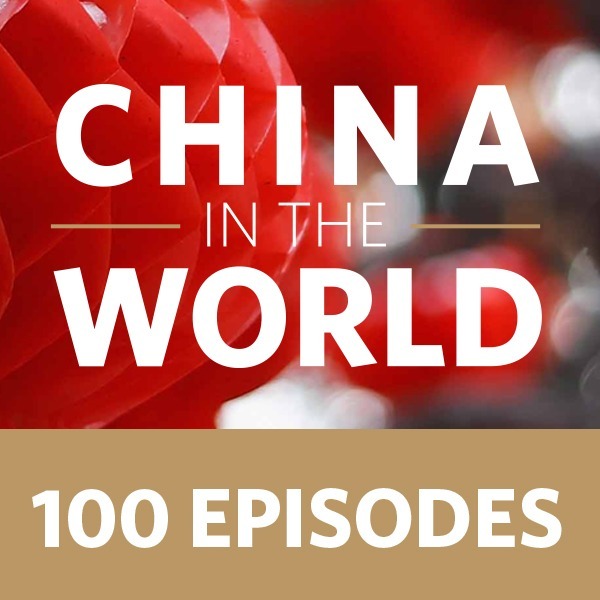
Over the past few years, Europe and the United States have each approached China’s rise differently. Washington has moved to reduce its economic reliance on Beijing while castigating its increasingly assertive global stance. Brussels, on the other hand, has tried to insulate its business ties with China from its concerns about Chinese policies and ambitions. Europe and China jointly proposed the Comprehensive Agreement on Investment (CAI), while German Chancellor Angela Merkel and French President Emanuel Macron strived to keep the continent’s relations with Beijing on solid footing. Recently, however, it appears as though Europe has shifted course to align elements of its China strategy more closely with those of the United States. The CAI has been shelved, and France and Germany have announced plans to play a larger role in the South China Sea disputes. How will Europe manage its relationship with Beijing going forward? And how should Europe deal with worsening U.S.-China relations?
During a live recording of the China in the World podcast, Paul Haenle spoke with Rosa Balfour, director of Carnegie Europe, and Cui Hongjian, director of the Department of European Studies at the China Institute of International Studies, on the trajectory of U.S.-EU-China relations. This panel is the fifth of the Carnegie Global Dialogue Series 2020-2021 and is also available to be watched online.
What Lies Ahead for China in the Middle East
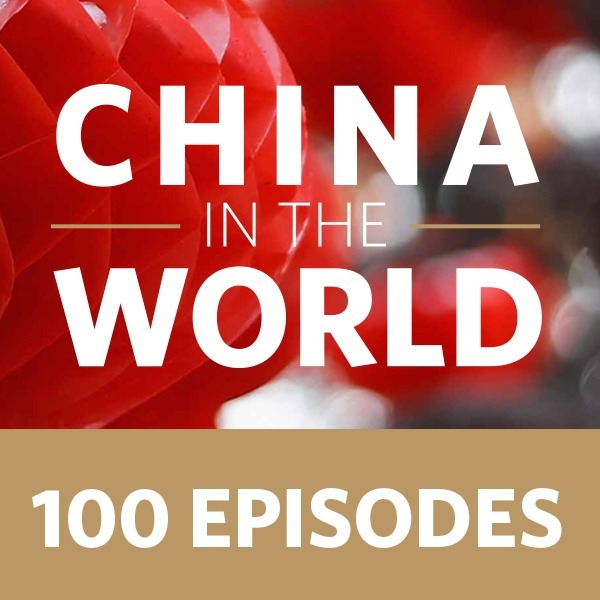
Conflict and instability in the Middle East show no signs of abating. Recent jousting between Israeli and Palestinian forces, the ongoing war in Yemen, and continued Saudi Arabia-Iran friction threaten to further destabilize the region. Though President Biden is attempting to restore coherence in the U.S. approach to the Middle East, his administration remains focused on responding to the pandemic domestically and on countering China in the international arena. Beijing, for its part, appears intent on playing a larger role in Middle Eastern affairs. It continues to foster stronger ties with regional countries through its Belt and Road Initiative and bilateral cooperation agreements, such as the twenty-five-year investment deal with Iran. How will China’s growing influence in the region affect the interests of the United States and other actors?
During a live recording of the China in the World podcast, Paul Haenle spoke with Karim Sadjadpour, a senior fellow in the Carnegie Endowment’s Middle East Program, and He Wenping, a professor at the Institute of West Asian and African Studies at the Chinese Academy of Social Sciences. This panel is the fourth of the Carnegie Global Dialogue Series 2020-2021 and is also available to be watched online.
Setting the Table for U.S.-China Strategic Competition
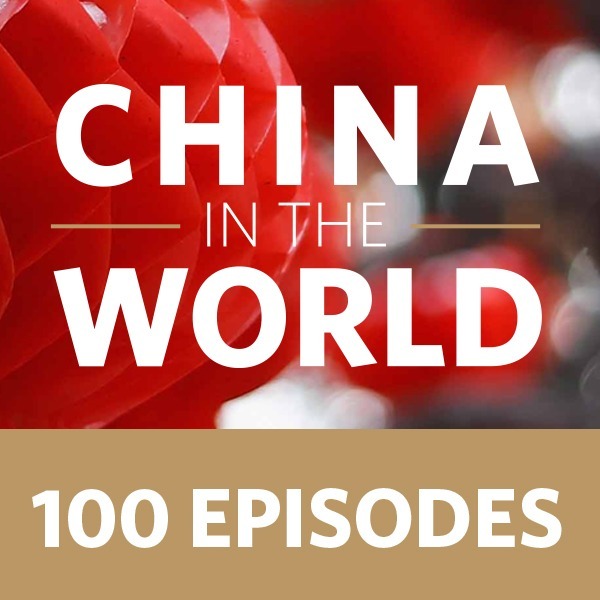
The Biden administration has an opportunity to recalibrate U.S. China policy to better reflect current realities. Has the administration been effective in laying the groundwork for strategic competition with China? How can Washington maintain a competitive relationship with Beijing while minimizing the risk of conflict? What did the U.S.-China Anchorage summit signal about the trajectory of U.S.-China relations? On this joint episode of the China in the World podcast and Polaris-Live, Paul Haenle joined Sarwar Kashmeri to discuss U.S.-China relations 100 days into the Biden administration. The discussion was hosted by Polaris-Live, in conjunction with the Foreign Policy Association of New York, and can be viewed online.
https://www.youtube.com/watch?v=VJ59Nf_inhA&ab_channel=SarwarKashmeri
China-Russia Relations at the Dawn of the Biden Era
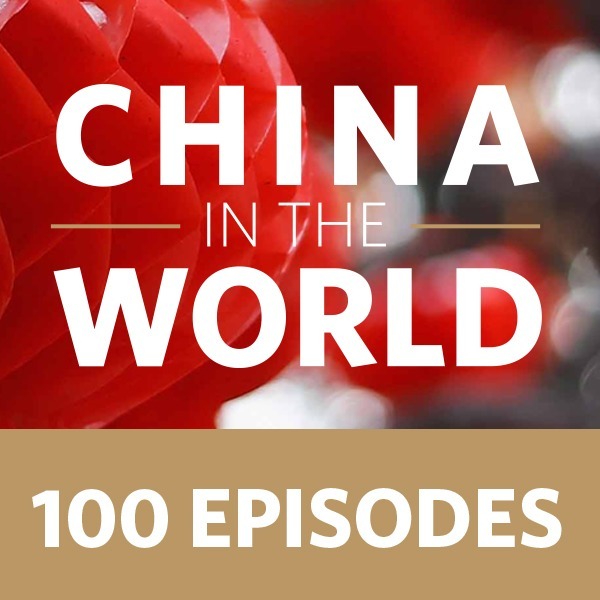
While U.S.-China and U.S.-Russia relations have steadily deteriorated, China-Russia cooperation has grown in its stead. On the heels of the contentious U.S.-China Alaska summit, Chinese and Russian foreign ministers met in Guilin to discuss bilateral cooperation on a range of issues and even published a joint statement promoting a shared vision for global governance. However, it is unclear to what extent Russian and Chinese interests will continue to converge. Although both nations have found a common adversary in the United States, any divergence of Russian or Chinese interests could create roadblocks to the two countries’ warming relations. Given China’s increasing economic and political clout, how will Russia manage the relationship in a way that concurrently maintains cooperation with China and protects its own national interests? Will China continue to view Russia as a security and economic partner? And how does the United States view and approach strong China-Russia ties?
During a live recording of the China in the World podcast, Paul Haenle spoke with Andrew Weiss, James Family Chair and vice president for studies at the Carnegie Endowment, Guan Guihai, associate professor at and executive vice president of the Institute of International and Strategic Studies at Peking University, and Vita Spivak, analyst at Control Risks, a global consulting firm, on recent developments in China-Russia relations and their implications for the United States. This panel was hosted as the third of the Carnegie Global Dialogue Series 2020-2021 and is also available to be watched online.
What Has Biden Achieved in 100 Days?

As President Biden wraps up his first 100 days in office, there remain significant questions surrounding the future of U.S.-China ties. How has the bilateral relationship changed? Will the Biden administration maintain the Trump administration’s policy of strategic competition? How has Beijing responded so far? On this joint episode of the China in the World podcast and AmCham Shanghai’s China Voices podcast, Paul Haenle joined Kate Magill to discuss the state of U.S.-China relations after Biden’s first 100 days.
For more in-depth analysis on Biden’s 100 days, be sure to check out Haenle’s recently published piece “Setting the Table for U.S.-China Strategic Competition.”
Link: https://carnegieendowment.org/2021/04/27/setting-table-for-u.s.-china-strategic-competition-pub-84378
Part 2: Four Principles to Guide U.S. Policy Toward China

As the U.S.-China relationship becomes more competitive, how should the Biden administration approach ties with Beijing? What concepts should guide Washington’s China policy? In part two of this two-part podcast, Paul Haenle spoke with Ali Wyne, senior analyst with Eurasia Group’s Global Macro practice, about four principles the administration should follow to formulate a sustainable U.S. strategy toward China.
Part 1: Four Principles to Guide U.S. Policy Toward China

As the U.S.-China relationship becomes more competitive, how should the Biden administration approach ties with Beijing? What concepts should guide Washington’s China policy? In part one of this two-part podcast, Paul Haenle spoke with Ali Wyne, senior analyst with Eurasia Group's Global Macro practice, about four principles the administration should follow to formulate a sustainable U.S. strategy toward China.
What's Next for China-India Relations – A Look Ahead

Last year’s Mamallapuram summit between Chinese President Xi Jinping and Indian Prime Minister Narendra Modi suggested the historically tense China-India relationship was warming considerably. 2020, however, has been a markedly difficult year for the two countries. The ongoing Himalayan border conflict has plunged bilateral ties into crisis, and New Delhi has taken steps to limit Chinese investment into India and banned hundreds of Chinese mobile applications. While the border situation has stabilized over the past couple months, the future of China-India relations remains uncertain. What has driven the relationship’s deterioration, and is there any chance the two countries can get back on track? During a live recording of the China in the World podcast, Paul Haenle spoke with Ashley Tellis, senior fellow at the Carnegie Endowment for International Peace, and Han Hua, associate professor at Peking University, about the trajectory of China-India ties and the prospect for improved relations between Asia’s two largest countries.
U.S.-China Relations Under Biden – A Look Ahead

While the recent election of Joe Biden likely signals a raft of domestic political changes, its impact on U.S.-China relations remains unclear. The Trump administration has remolded the relationship, which is now defined by confrontations over economic practices, emerging technologies, and security. There is also growing bipartisan support for pursuing a tougher approach to China, and the Justice, State, and Defense departments are increasingly prioritizing new initiatives to push back on Beijing. Will Biden maintain the confrontational tone and policies of his predecessor? Or will he devise an entirely different posture toward Beijing? The answers to these questions will not only have critical consequences for the two countries in question, but for the broader international community as well. During a live recording of the China in the World podcast, Paul Haenle spoke with Evan Feigenbaum, vice president for studies at the Carnegie Endowment for International Peace, and Xie Tao, dean of the School of International Relations and Diplomacy at Beijing Foreign Studies University, on how the Biden administration might approach China, as well as how Beijing is gearing up for the new U.S. president.
Paul Haenle on The Future of U.S.-China Relations

President-elect Joe Biden will enter the White House with challenging domestic and foreign policy agendas. Where does China rank on the Biden administration’s priority list? How is Beijing likely to respond to Biden’s election, and what are the implications for U.S. policy in the Asia-Pacific? On this collaborative episode of the China in the World podcast and the Carnegie Endowment’s The World Unpacked podcast, Paul Haenle joined Laura Lucas Magnuson, Carnegie's vice president for communications and strategy, to discuss the future of U.S.-China relations.
The Korean Peninsula After the U.S. Elections
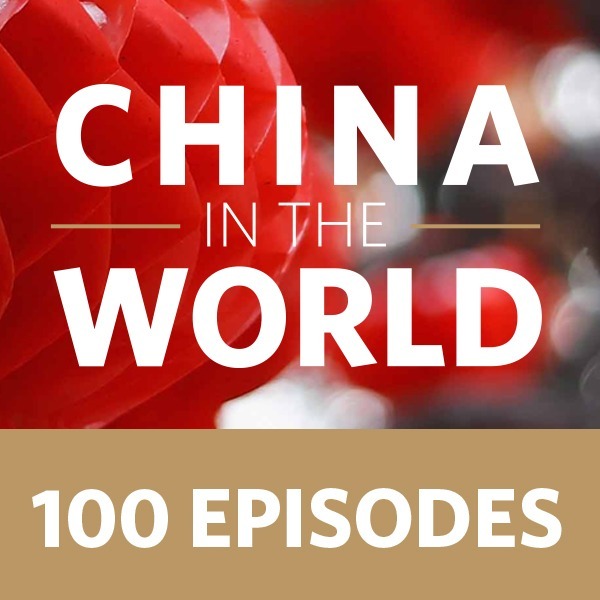
The result of the upcoming U.S. presidential election will directly impact how the United States, China, and Russia approach issues on the Korean Peninsula. How would a second Trump or first Biden administration deal with North Korea? How do policymakers in Beijing and Moscow evaluate their relations with Pyongyang? During a live recording of the China in the World podcast, Paul Haenle spoke with Carnegie experts Alexander Gabuev and Tong Zhao about the outlook for denuclearization of the Korean Peninsula and the role of the United States, China, and Russia.
Pulling U.S.-China Relations Back from the Brink

Why has the coronavirus crisis evolved into a contest of systems between the United States and China? What is driving China’s “wolf warriors?” Can Washington and Beijing construct more effective official dialogue mechanisms to address bilateral problems? On this episode, Paul Haenle and Zha Daojiong, professor of international political economy at Peking University, have a wide-ranging discussion on U.S.-China relations. Haenle and Zha analyze the many factors driving a downward spiral in U.S.-China relations and the outlook for bilateral ties ahead of the U.S. presidential election. They end the discussion reflecting on steps that both Washington and Beijing should take to pull the relationship back from the brink.
Understanding the Role of Ideology in U.S.-China Relations

U.S.-China relations are more adversarial than at any time in decades. The risk of confrontation or conflict has significantly increased, and domestic politics in both countries have exacerbated tensions. What role does ideology play in the ongoing deterioration of the relationship, and how will it impact future bilateral ties? In this episode, Paul Haenle spoke with Jie Dalei, associate professor at the School of International Studies at Peking University, to discuss the role of ideology in the U.S.-China relationship and its impact on consequential bilateral issues like Taiwan, Hong Kong, and COVID-19.
China-India, John Bolton, and U.S. Presidential Elections

On June 15, a month-long border standoff between Chinese and Indian forces escalated into a bloody conflict. A week later, former National Security Advisor John Bolton released his tell-all book revealing troubling positions taken by President Trump on China. In this episode, Paul Haenle spoke with Chen Dingding, professor of international relations at Jinan University and founding director of the Intellisia Institute, to better understand how these developments are being viewed in China and analyze their implications for the U.S.-China relationship and upcoming presidential elections.
Coronavirus and the Korean Peninsula

As nations confront the pandemic, rumors of Kim Jung-un’s death and a flurry of North Korean missile tests injected even more uncertainty in the international landscape. How do views in Washington, Seoul, and Beijing differ or align on North Korea? What are the prospects for the resumption of diplomacy between Washington and Pyongyang? And how do tensions on the Korean Peninsula affect Northeast Asia more broadly? Paul Haenle spoke with other Carnegie experts Chung Min Lee and Tong Zhao for a live recording of the China in the World podcast, where they discuss the outlook for the denuclearization of the Korean Peninsula and shifting geopolitical dynamics in the Asia Pacific.
SPECIAL LIVE EPISODE: Coronavirus and the Korean Peninsula

Paul Haenle is hosting a special live episode of the China in the World Podcast this Friday, May 15, at 9 PM EST.
Join Paul and other Carnegie experts Chung Min Lee and Tong Zhao for a discussion on the outlook for denuclearization efforts on the Korean peninsula and shifting geopolitical dynamics in the Asia-Pacific.
A link to the event can be found here: https://carnegieendowment.org/2020/05/15/china-in-world-interactive-podcast-coronavirus-and-korean-peninsula-event-7328
U.S.-China Relations 2020: Coronavirus and Elections

China is facing growing international scrutiny due to its initial mishandling of the coronavirus outbreak. Countries are increasingly questioning the motives underlying Beijing’s recent international aid efforts, and there is growing concern over developments in the South China Sea, Taiwan Strait, and Hong Kong. In this episode, Paul Haenle spoke with Xie Tao, dean of the School of International Relations and Diplomacy at Beijing Foreign Studies University, to better understand China’s perspective on recent pushback against Beijing, the implications of regional security developments, and China’s role in the 2020 U.S. presidential election.
Missing in Action: U.S.-China Cooperation on Coronavirus

The coronavirus outbreak has highlighted the many issues in the U.S.–China relationship. Why can’t Washington and Beijing better coordinate a response to the pandemic, replicating their cooperative efforts during the 2008 financial crisis and 2014 Ebola outbreak? Paul Haenle spoke with Evan Feigenbaum, vice president for studies at the Carnegie Endowment for International Peace, on the dynamics preventing bilateral cooperation and the implications for a post-coronavirus world.
The Erosion of the Global Arms Control Regime
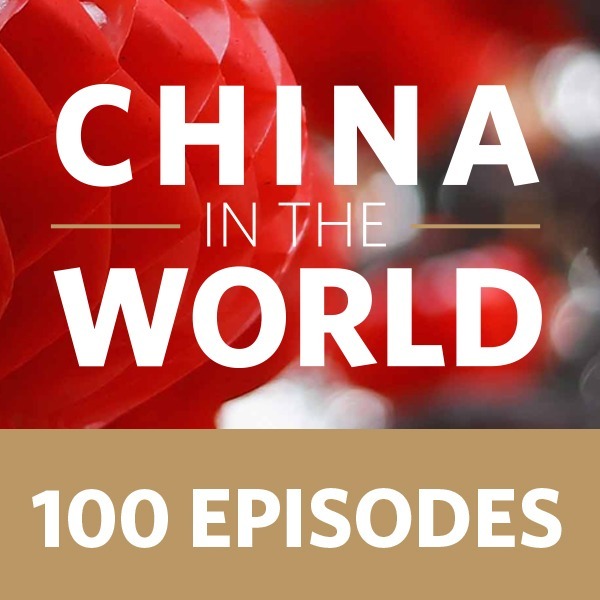
The U.S. withdrawal from the Intermediate-Range Nuclear Forces Treaty (INF) and the expiration of the New START treaty in 2021 threaten to derail decades-long efforts to maintain an effective global arms control regime. In this episode, Tong Zhao spoke with Richard Weitz, senior fellow and director of the Center for Political-Military Analysis at the Hudson Institute, about the deterioration of global arms control institutions and its effects on U.S.-China relations and regional nonproliferation efforts to contain North Korea and Iran's nuclear ambitions.
Weitz argued that the U.S. withdrawal from the INF treaty stemmed from Russia’s repeated violations of the agreement and had little to do with China. Weitz said, however, that Beijing must be included in any new negotiations despite the difficulties of implementing trilateral arms control agreements. Furthermore, Weitz highlighted Beijing’s crucial role in either resuscitating the crumbling Iran nuclear agreement or negotiating a new one. On North Korea, Weitz said a lack of forward momentum in diplomacy could lead to increased tensions with Pyongyang. Though measured sanctions relief might be necessary to prevent a return to the brinksmanship of 2017, Weitz cautioned against any such actions that do not include safeguards that prevent Pyongyang from reneging on its commitments.
The Trump Administration's Shifting Rhetoric on China

Recent speeches by Vice President Mike Pence and Secretary of State Mike Pompeo reiterated the Trump administration’s China-related grievances, yet they also revealed a new openness to engagement with China. Paul Haenle spoke with Michael Swaine, senior fellow at the Carnegie Endowment for International Peace, about how a more thoughtful approach to the bilateral relationship might look, as well as what recent changes in the Trump administration’s rhetoric about Beijing reveal.
Swaine said Beijing’s transformation into a more ideological, party-driven, assertive, and capable power has raised questions in the United States over the efficacy of engagement. The Trump administration, however, has been too simplistic in its assessment of China and presented a one-dimensional “cartoonish” picture of Beijing. In doing so, it has failed to articulate a nuanced approach that addresses the real challenges China pose. Recent polls highlight that most Americans still prefer positive relations with Beijing but are concerned about China’s more assertive behavior at home and abroad. Different definitions of human rights, among other issues, limit the possibility of future cooperation. However, Swaine argued recent speeches by senior Trump administration officials may indicate a new attitude toward Beijing–one that does not completely reject engagement. Swaine argued this shift in tone is due to the administration’s realization that American allies and partners have serious misgivings about its zero-sum view of its relationship with China. Swaine cautioned, however, that U.S.-China relations are unlikely to improve substantially in the near future, especially if Beijing continues to be unwilling to take greater responsibility to address growing international concern surrounding its rise.
QUICK TAKE: What Does China Think About Soleimani’s Killing?

The U.S. strike on Qasem Soleimani took the world by surprise and has enormous implications for U.S. relations not only with Iran, but also with the rest of the Middle East and the international community. How have news of the attack and other related developments been received in China? Just days after the January 3rd strike, Paul Haenle spoke with Jin Canrong, associate dean of the School of International Studies at Renmin University, to discuss China’s view on the killing of Soleimani and developments since.
Are U.S.-China Relations In a Downward Spiral?

Is the current downturn in U.S.-China relations different from anything the two countries have experienced before? Paul Haenle sat down with Daniel Russel, vice president for International Security and Diplomacy at the Asia Society Policy Institute and former assistant secretary of state for East Asia and Pacific Affairs, to reflect on why bilateral relations have deteriorated and what each country can do to right the ship, as well as expectations for diplomacy on the Korean peninsula in 2020.
Russel said the ongoing downturn in U.S.-China ties is different from past pendulum swings and that there is a real possibility the two countries could enter a downward spiral that would be difficult to reverse. He attributed part of the deterioration to China’s growing assertiveness and exploitative economic practices, many of which have provoked the United States, as well as other countries, to push back. Russel also highlighted the Trump administration’s abandonment of a multilateral, deliberate, and solutions-oriented approach to foreign policy. The administration has taken a “wrecking ball” to China policy solely to halt Beijing's rise and express American grievances, Russel said. Escaping this negative spiral will require good-faith actions from both countries. Beijing needs to recalibrate its feedback mechanisms, which have prevented it from understanding how other countries perceive its actions, and should narrow the “say-do” gap that has eroded China’s credibility in the United States and around the world. Along with revising its wrecking-ball approach, the Trump administration needs to resist the temptation to adopt illiberal tactics, such as restricting Chinese investment and limiting people-to-people exchanges. On North Korea, Trump has humiliated American allies, ignored Pyongyang's violations of United Nations Security Council resolutions, and ceded important leverage to Kim Jong-un, Russel said. Put simply, Kim has demonstrated he has a strategy while Trump has demonstrated he does not.
Was Engagement with China Really Such a Failure?

Shortly before the United States and China announced that they had reached a “Phase One” trade deal, Paul Haenle sat down with Andy Rothman, principal advisor at the investment firm Matthews Asia and former head of macroeconomics and domestic policy at the U.S. embassy in Beijing. The two discussed the trade dispute, whether the U.S. policy of economic engagement with China failed, and the trade deal.
Rothman argued that, contrary to the dominant narrative in Washington, engagement has accomplished many of the goals it was designed to achieve. China has dramatically liberalized its economy, is one of the largest markets for U.S. companies, and is a source of cheap goods for American consumers. He argued decoupling is both impractical, given how integrated the two economies have become and how much U.S. companies rely on the Chinese market, and politically unfeasible, insofar as U.S. allies would be reluctant to back the effort. A more viable strategy would be to focus on achieving limited goals, such as securing increased market access and IP protection, rather than a structural overhaul of the Chinese economy. However, Rothman said that the first step should be securing a “Phase One” deal.
Will North Korea Take a “New Path” in 2020?

At the beginning of 2019, Paul Haenle and Tong Zhao, Carnegie–Tsinghua Center Senior Fellow, discussed the outlook for denuclearization on the Korean Peninsula on the China in the World podcast. As 2019 draws to a close, Haenle and Zhao sat down again to analyze developments involving North Korea, the United States, and China over the past year and discuss Kim Jong-un’s end of year deadline for the United States to change its approach to denuclearization negotiations.
Zhao pointed to Trump and Kim’s failure to reach an agreement at the Hanoi Summit as the biggest surprise in developments relating to diplomacy on the Korean Peninsula in 2019. In the wake of the summit and following a series of unproductive working-level talks, Kim is ramping up pressure on the United States to extract concessions, Zhao said. Pyongyang only wants a limited agreement from Washington that would see the relaxation of the most stringent United Nations Security Council sanctions in return for some controls on North Korea’s nuclear program. Zhao argued the United States and the international community no longer have the coercive ability to force North Korea to take significant actions that would circumscribe its nuclear program. As we approach North Korea’s end of year deadline, Zhao said he is uncertain to what extent Pyongyang will ratchet up tensions if a deal cannot be reached. However, he noted that Kim is increasingly adept at ensuring provactive actions such as missile tests do not irritate Russia or China, while applying greater pressure on the United States. North Korea increasingly views Trump as a paper tiger, Zhao said. Facing domestic pressures and unwilling to go to war, many in Pyongyang believe Trump will eventually lower his demands and agree to a lesser deal.
Three Speeches in October

In October 2019, Vice President Mike Pence, Secretary of State Mike Pompeo, and Delaware Senator Chris Coons, delivered speeches laying out their respective visions for the U.S.-China relationship. In this episode, Paul Haenle spoke with Robert Daly, director of the Kissinger Institute at the Wilson Center, about American and Chinese reactions to the speeches and the implications for the bilateral relationship.
“America has woken up to the dangers of China,” Daly said. There is agreement that the bilateral relationship will be more competitive but a lack of consensus on a comprehensive strategy going forward. Daly argued the speeches by Pence, Pompeo, and Coons articulated different strategies for future engagement. Coons laid out an approach in which competition and cooperation with China are not mutually exclusive. He advocated for the United States to revitalize domestic policies that spur economic growth and uphold U.S. values. Alternatively, Pompeo and Pence put forth more confrontational visions for the relationship in line with those of individuals like Steve Bannon and Senator Tom Cotton who view China as an existential threat. Americans must understand that either competition or outright rivalry with China will incur significant costs for the United States, Daly argued, but the latter approach is likely to be more costly in the long term.
Are China-Russia Relations Getting Too Close for Comfort?

Discussion of U.S.-China-Russia relations often focuses on how American policy is driving Moscow and Beijing closer together. This analysis, however, ignores important factors limiting cooperation between China and Russia and preventing the two countries from forming an alliance. Paul Haenle sat down with Carnegie scholars Dmitri Trenin, Eugene Rumer, and Alexander Gabuev to discuss constraints on the China-Russia relationship and their implications for U.S. policy.
Trenin, Rumer, and Gabuev agreed that there are clear limits to further China-Russia cooperation. Trenin characterized the relationship as an “entente” driven by a high degree of mutual strategic understanding on common core interests. Gabuev argued that China’s rapid pace of growth relative to Russia’s has led to insecurities in the Kremlin despite their growing economic, military, and technological ties. Russia does not want the relationship to become too asymmetrical and fears becoming overly reliant on Beijing for economic and technological support. Rumer argued neither side is looking for an alliance, as both Moscow and Beijing want to maintain positive relations, but at an arm’s-length. Haenle highlighted that Russia and China hold divergent views of the international system, leading to fundamental disagreements over whether to reform or undermine the global order. He argued that China is increasingly frustrated by Russian attempts to further its geopolitical aspirations by exploiting global instability.
Part 2: Is the US-China Relationship in Free Fall?

The U.S.-China relationship is bad, and it’s getting worse. In part two of this two-part podcast, Paul Haenle sat down with Da Wei, assistant president and professor at the University of International Relations in Beijing, to discuss evolutions in China’s politics, economics, and foreign policy affecting the U.S.-China relationship.
Da Wei argued that shifting domestic politics in China and the United States are negatively impacting bilateral ties. In Washington, there is no longer widespread support for engagement with China. In Beijing, debates over the role of the state in the economy, driven by a fear of falling into the middle-income trap, are limiting progress in implementing economic reforms. In the international sphere, China has abandoned its policy of “hide and bide” and is pursuing a more active foreign policy representative of it growing strength. The confluence of the above factors is exacerbating tensions between Beijing and Washington, as well as between China and other countries in the Asia-Pacific. No matter who wins the next U.S. election, Da Wei argued, China’s focus will be on creating a more stable and predictable relationship. Specifically, this will require Beijing and Washington to focus on defining clear areas of competition and cooperation.
Part 1: Is the US-China Relationship in Free Fall?

The U.S.-China relationship is bad, and it’s getting worse. In part one of this two-part podcast, Paul Haenle sat down with Da Wei, assistant president of and professor at the University of International Relations in Beijing, to discuss Chinese perceptions of the Trump administration one month after the August 1st tariff announcements.
Da Wei said the Trump administration has focused China’s attention on the need to address underlying issues in the bilateral relationship, but that it has overstepped. President Trump’s use of tariffs has hardened Chinese views and limited Beijing’s ability to make concessions, even if they are in China’s self-interest, without appearing weak. Trump’s decision to impose new tariffs on China following the Osaka G20 meeting and Shanghai negotiations reinforced Chinese views that Trump is unreliable and may even change his mind even if a deal is struck. Da Wei argued Trump’s objectives are different from those of his advisors. Officials in the administration have a range of economic and security goals that are not necessarily aligned with Trump’s. However, Da Wei said that a majority of Chinese people now believe that the United States seeks to undermine China’s rise.
Why Can’t the U.S. and China Make a Trade Deal?

Temporary truces followed by rapid escalations in the U.S.-China trade war continue to hamper progress toward a lasting trade deal. Policymakers in Washington and Beijing are now preparing for the possibility of a protracted dispute, and the ramifications that accompany it. In this podcast, Paul Haenle spoke with Jia Qingguo, professor at and former dean of the School of International Studies at Peking University, about the many factors hampering trade negotiations and the deeper structural issues in the U.S.-China relationship. Haenle and Jia discuss the difficulties facing leaders in both countries as they grapple to resolve trade tensions while dealing with domestic politics, vested interest groups, and strong historical legacies.
The Crisis Unfolding in Asia

In this episode, Paul Haenle spoke with Evan Medeiros, former special assistant to the president and senior director for Asian affairs at the National Security Council, on escalating tensions between Japan and South Korea and the implications for the United States and China.
How Might a Democratic President Deal with China?

Presidents Trump and Xi will meet on the sidelines of the G20 later this week following a breakdown in bilateral trade negotiations and amid growing technological competition. In this episode, Paul Haenle spoke with Jake Sullivan, former national security advisor to vice president Joe Biden and senior fellow at the Carnegie Endowment for International Peace, on how U.S. policy toward China might differ under a Democratic president and China’s role in the 2020 presidential campaign.
Iraq, ISIS, and China’s Balancing Act in the Middle East

Upheavals and changing political dynamics across the Middle East are threatening to destabilize the region. External powers, notably the United States and China, are shifting their tactics, as Washington rebalances its presence and Beijing expands its economic interests. In this episode, Paul Haenle spoke with Brett McGurk, former special presidential envoy for the global coalition to defeat ISIS and nonresident senior fellow at the Carnegie Endowment for International Peace, on his extensive background working in the Middle East and the implications of shifting U.S. and Chinese policy for the region.
China-India Relations One Year After the Wuhan Summit

In May 2018, President Xi Jinping and Prime Minister Narendra Modi met in Wuhan for an informal summit that many said helped reset the relationship following the Doklam crisis. In this episode, Paul Haenle spoke with Rudra Chaudhuri, director of Carnegie India, and Srinath Raghavan, senior fellow at Carnegie India, about the state of China-India relations one year after Wuhan, as well as the implications of Trump’s “America First” policies on New Delhi-Beijing relations.
Can China Remain Above Geopolitics in the Middle East?

As the United States reassess its involvement in the Middle East, China is stepping up its economic engagement with the region. In this podcast, Paul Haenle spoke with Marwan Muasher, vice president for Studies at the Carnegie Endowment for International Peace and former deputy prime minister for Jordan, on difficult transitions Middle Eastern countries face following the Arab Spring, as well as the challenges for China as its grows its presence in the Arab world,
Reassessing China: Europe Sharpens Its Approach

In recent weeks Beijing has both won victories and suffered defeats during important summits and dialogues with France and Italy, as well as the European Union. Paul Haenle sat down with Tomas Valasek, director of Carnegie Europe, and Pierre Vimont, senior fellow at Carnegie Europe, to discuss underlying issues driving China-Europe relations, the outlook for China’s engagement with the European Union (EU), and the implications for transatlantic relations.
Susan Thornton on a Crisis in U.S.-China Relations

Over three years into Trump’s presidency, U.S.-China trade and economic issues remain unresolved while security concerns are creeping into the bilateral agenda. In this podcast, Paul Haenle spoke with Susan Thornton, former assistant secretary of state for East Asian and Pacific Affairs, on the trajectory for bilateral ties and the potential for a crisis in U.S.-China relations.
Xi's Visit to Europe and China as a "Systemic Rival"

President Xi Jinping travels to Italy and France this month for his first overseas trip of 2019. His visit comes soon after the European Commission labeled China a “systemic rival” and “economic competitor.” In this podcast, Paul Haenle spoke with Philippe LeCorre, nonresident senior fellow in the Europe and Asia programs at the Carnegie Endowment for International Peace, on Xi Jinping’s upcoming trip and shifting perceptions of China across Europe.
Nuclear Issues in the Asia-Pacific: The Hanoi Summit and the INF Treaty

The upcoming Hanoi Summit and the United States’ withdrawal from the Intermediate-Range Nuclear Forces Treaty (INF) are two important developments in the area of nuclear arms control with significant implications for the Asia-Pacific region. In this episode, Tong Zhao spoke with Li Bin, senior fellow in the Carnegie Endowment’s Nuclear Policy and Asia programs, about the importance of these two critical nuclear arms control issues and their implications for China.
The U.S.-China Economic Relationship: Engagement and Decoupling

To commemorate the fifth anniversary of the China in the World podcast, Paul Haenle is interviewing five of the most influential Chinese scholars to discuss this important inflection point in U.S.-China relations. For the fifth and final episode in this series, Haenle spoke with Professor Yao Yang, one of China's top economists and Dean of the National School of Development at Peking University.
New Summit, Old Issues: Trump-Kim Round 2

Kim Jong-un’s New Year’s address and fourth visit to Beijing quickly put Pyongyang back in the spotlight in 2019. His meeting with Xi Jinping also likely foreshadowed a meeting with President Trump in the near future. On this episode of the China in the World podcast, Paul Haenle spoke with Tong Zhao, a fellow at the Carnegie–Tsinghua Center for Global Policy, on the implications of Kim’s New Year’s address and meeting with Xi Jinping, as well as the outlook for North Korea’s relations with China and the United States in 2019.
Zhao said Kim’s threats to take a “new path” if the U.S. does not lift sanctions does not mean a return to nuclear and missile tests. Instead, Pyongyang will likely strengthen ties with Beijing, departing from its focus on balancing relations between the United States and China. Zhao agreed with Haenle that the North Korea nuclear problem is not solved, as President Trump has claimed. North Korea appears committed to maintaining its intercontinental ballistic missile and nuclear programs. The fundamental barrier preventing progress on denuclearization is that Pyongyang will not trust any U.S. security guarantees, as such commitments are reversible. Instead, Zhao pushed for a long-term process that builds trust and transforms the relationship from hostile to friendly. The Kim-Xi relationship is one of convenience, rather than actual friendship, Zhao said. As Kim prepares for a second summit with Trump, he is not confident he can secure sanctions relief and is more willing to cozy up to Beijing. However, building a long-term relationship with the United States remains Kim’s priority. Washington’s support is key to lifting UN sanctions that prevent the North Korean economy from developing quickly. Zhao said China supports a second meeting between Trump and Kim because there is real hope that it could lead to actual progress on a deal. However, if the meeting does not go well, China is likely to blame the United States for not accommodating North Korean demands, widening the gap between Washington and Beijing during a delicate period in the relationship. If the situation on the Korean Peninsula deteriorates, China might even accuse the United States of deliberately precipitating a crisis to advance its own interests in the region.
Graham Allison on Avoiding the Thucydides Trap

How can the United States and China peacefully manage growing bilateral competition? In this podcast, Paul Haenle spoke with Graham Allison, Douglas Dillon Professor of Government at Harvard University, on the concept of the Thucydides Trap and its relevance to the U.S.-China relationship.
Allison said the Thucydides Trap is the best framework to understand why there is potential for conflict between the United States and China. As China grew stronger, the U.S. failed to recognize Beijing would increasingly assert its own vision for the international order, thereby challenging the American-led global system. China now represents both a strategic rival and partner for the United States. The bilateral relationship needs a new framework that accounts for significant areas of competition and cooperation. Allison said the United States and China share vital national interests in ensuring the survival of their respective nations and must work to resolve issues clouding the economic relationship. This includes devising a new set of rules that accounts for China’s unprecedented economic development and status as a global power. For guidance, policymakers should look to John F. Kennedy’s post-Cuban Missile Crisis call for a world “safe for diversity.” This would allow nations with different political systems, economic development models, and ideologies to compete in peaceful co-existence.
China’s Shift to a More Assertive Foreign Policy

To commemorate the fifth anniversary of the China in the World podcast, Paul Haenle is interviewing five of the most respected Chinese international affairs scholars to discuss this important inflection point in U.S.-China relations. For the fourth episode in this series, Haenle spoke with Shi Yinhong, Director of the American Studies Institute at Renmin University and Director of the Academic Committee of the School of International Relations.
Shi pointed to two important turning points in China’s foreign policy shift to a more assertive international approach. The first was the global financial crisis stressed the importance of China’s economic development as an engine for global growt. The second was Xi’s rise to power and a more ambitious international approach. Shi said China undertook a number of new foreign policy initiative in the South China Sea, relations with Russia, and the Belt and Road Initiative. China is now at a stage where it should assess the successes and failures of its recent foreign policies. Beijing must be willing to be flexible and adjust its future international engagement to reflect the realities of the evolving geopolitical environment. At home, Chinese policymakers should implement much more broad and deep reforms to ensure stable economic and financial systems. This includes areas increasing market access, giving equal treatment to private and state owned enterprises, and addressing core demands laid out in the USTR section 301 report. Time is running out, Shi argued, and China needs to act quickly before implementing further economic reforms becomes too difficult. In the current contentious US-China relationship, Shi said prudent pessimists are needed to think through urgent resolutions and save the bilateral relationship from continuing down a dangerous path.
Devising A New Formula for Global Leadership

To commemorate the fifth anniversary of the China in the World podcast, Paul Haenle is interviewing five of the most respected Chinese international affairs scholars to discuss this important inflection point in U.S.-China relations. For the third episode in this series, Haenle spoke with Yan Xuetong, dean of the Institute of International Studies at Tsinghua University and secretary general of the World Peace Forum.
Yan asserted the U.S.-China relationship is experiencing structural disruptions, the resolution of which will have a lasting impact on the two countries. China’s economic achievements over the past 40 years are based on market economy reforms and the development of the private sector, Yan argued. He said the tensions in the U.S.-China relationship are primarily due to the narrowing gap between the two countries’ national strength. Going forward, the United States and China need to address their own domestic problems related to economic growth and technological development before resolving foreign policy issues. Beijing was right to shift from its past policy of keeping a low international profile, Yan said. However, China should focus on strengthening its regional position before moving too quickly into other parts of the globe. The Trump administration has made clear that it will forsake traditional U.S. global leadership roles, Yan said, but China does not yet have the capacity to supplant the United States in the international arena. This new dynamic stresses the need for the two countries to establish a framework that allows for joint leadership, as neither is willing or able to lead unilaterally.
Sources of Competition in U.S.-China Relations

To commemorate the 5th anniversary of the China in the World podcast, Paul Haenle is interviewing five of the most respected Chinese international affairs scholars to discuss this important inflection point in U.S.-China relations. For the second episode in this series, Haenle spoke with Wang Jisi, professor in the School of International Studies and president of the Institute of International and Strategic Studies at Peking University.
Managing a Fragile Transition in U.S.-China Relations

To commemorate the 5th anniversary of the China in the World podcast, Paul Haenle is interviewing five of the most respected Chinese international affairs scholars to discuss U.S.-China relations at an important inflection point. For the first episode in this series, Haenle spoke with Cui Liru, former president of the China Institutes of Contemporary International Relations. During the episode, Haenle and Cui discussed lessons from the past 40 years of the bilateral relationship, central areas of cooperation and competition, and a future framework that will allow the U.S. and China to avoid conflict. Cui asserted that U.S. and Chinese interests are not fundamentally incompatible, but that the relationship is in a fragile transition period that will require each country to work harder to better understand the other side’s common and diverging interests.
U.S.-China Relations Following the Midterms and Ahead of the G20

Do the U.S. midterm election results have implications for the U.S.-China relationship? In this podcast, Paul Haenle spoke with Douglas H. Paal, vice president for studies at the Carnegie Endowment for International Peace, about the midterm elections and the status of pressing security issues impacting the bilateral relationship, including Taiwan, North Korea, and the South China Sea.
U.S.-China-Russia Cooperation in Mitigating Nuclear Threats

In this episode, Tong Zhao spoke with Richard Weitz, senior fellow and director of the Center for Political-Military Analysis at the Hudson Institute, about U.S., Chinese and Russian perspectives on nuclear arms control and its relevance to denuclearization of the Korean Peninsula.
Is the U.S. Driving China and Russia Together?

As U.S. relations with China and Russia deteriorate under the Trump administration, bilateral relations between Moscow and Beijing grow stronger. In this podcast, Paul Haenle spoke with Dmitri Trenin and Alexander Gabuev, director of and senior fellow at the Carnegie Moscow Center, respectively, about dynamics between the three countries and whether U.S. policy is driving China and Russia closer together.
A Perfect Storm in U.S.-China Relations?

Disagreements between the U.S. and China have the potential to reshape the long-term trajectory of the bilateral relationship. In this podcast, Paul Haenle spoke with Daniel Russel, former assistant secretary of state for East Asian and Pacific affairs, on the future prospects for U.S.-China relations and the potential for significant and long-lasting structural shifts in the relationship.
How Can China Address Global Concerns over its Trade and Economic Policies

One week after Vice President Pence’s Hudson Institute speech, Paul Haenle spoke with professor Da Wei, assistant president and professor at the University of International Relations in Beijing, to understand China’s reaction to the speech and discuss what steps the U.S. and China might take to address the current tensions over trade and economics.
Haenle noted that official Chinese narratives about the U.S.-China trade war have been absent Chinese reflection or discussion of what role China’s own policies have played in creating trade tensions. Haenle argued that many of the concerns on structural issues – i.e. market access, intellectual property rights, forced technology transfer, and China’s industrial policies – are of common concern by the international community. Casting these concerns only in the U.S.-China bilateral context leads to narratives in China that accuse the U.S. of seeking to contain China’s rise, rather than as shared global concerns. Da Wei stressed that as China celebrates its 40th anniversary of reform and opening up, Chinese policymakers and academics are beginning to reflect on the need for further economic reforms. However, vested interests among various Chinese stakeholders make implementing these reforms increasingly complicated. Professor Da Wei agreed with Haenle on the need for China to acknowledge the concerns of the international community, pointing toward the meeting between presidents Trump and Xi at the G20 as an opportunity to do so. At the same time, Professor Da Wei suggested that Trump could use the meeting to reassure Xi the U.S. is not seeking to contain China or block its continued development.
The U.S. and China as Peer Competitors in the Indo-Pacific

The Trump administration has taken a more confrontational approach to bilateral relations with China, implementing tariffs on nearly half of all Chinese exports to the United States and treating Beijing as a strategic competitor across many aspects of the relationship. In this podcast, Paul Haenle spoke with Abigail Grace, a research associate in the Asia-Pacific Security Program at the Center for a New American Security, on the changing dynamics of U.S. relations with China, and the U.S. Free and Open Indo-Pacific strategy.
Paul Haenle and Kaiser Kuo on DPRK Diplomacy and U.S.-China Relations
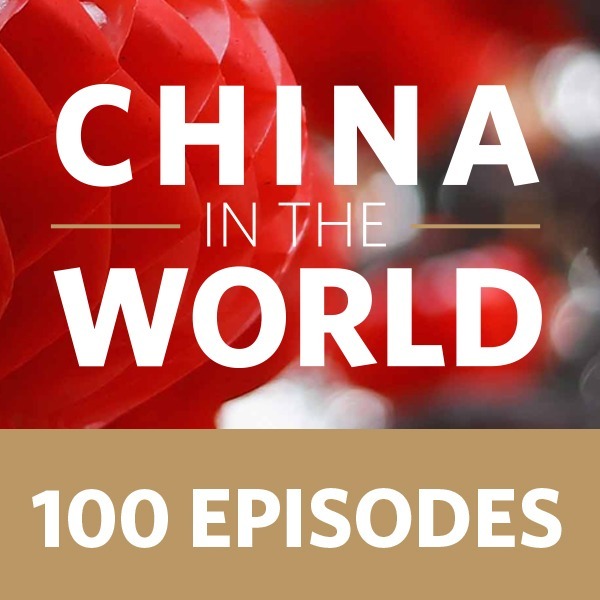
In this episode of the China in the World podcast, Paul Haenle joined Kaiser Kuo, editor-at-large of SupChina, to discuss next steps for DPRK diplomacy and tensions between the United States and China over trade, Taiwan, and the Belt and Road Initiative.
Haenle shared his experience working as White House representative to the Six-party talks in the Bush administration. He said China’s relations with North Korea reached a historic low in 2017 due to the leadership's frustration with Pyongyang's provocative nuclear and missile tests, leading to Beijing's increased willingness to join the international maximum pressure campaign. Haenle argued the Singapore summit reduced U.S. leverage with North Korea and produced a vague statement which failed to advance denuclearization. On the U.S.-China trade dispute, Haenle urged the Trump administration to work closely with U.S. allies who share concerns about China's industrial policies, market access restrictions, and intellectual property rights violations. He expressed concern over the lack of a comprehensive U.S. strategy toward China, especially with regard to cross-Strait relations and the Belt and Road Initiative.
China and the U.S. Nuclear Posture Review

The release of the Trump Administration’s Nuclear Posture Review earlier this year emphasized the growing threat of nuclear competition in the Asia-Pacific, specifically with reference to Russia, North Korea, and China. In this podcast, Tong Zhao sat down with David Santoro, Director and Senior Fellow of Nuclear Policy Programs at the Pacific Forum, to explore pressing nuclear issues in the region and their implications for the U.S.-China relationship.
Technology and Innovation in an Era of U.S.-China Strategic Competition

China has taken significant steps to implement national strategies and encourage investment aimed at surpassing the U.S. in high-tech fields like artificial intelligence. In this podcast, Paul Haenle sat down with Elsa Kania, Adjunct Fellow at the Center for a New American Security and Carnegie-Tsinghua Young Ambassador, to discuss the growing competition in the development of technology and innovation on the U.S.-China relationship and the consequences for future cooperation in these fields.
U.S.-China Tensions over Trade and Technology

Trade tensions between the U.S. and China continue to escalate, accentuating disagreements on economic policy and fueling competition over emerging technologies. In this podcast, Paul Haenle sat down with Chen Dingding, professortch of International Relations at Jinan University, to discuss Chinese reactions to the ongoing trade dispute and bilateral competition surrounding strategic technologies like artificial intelligence.
Paul Triolo on Made in China 2025

China’s “Made in China 2025” policy to upgrade its industry plays a central role in the ongoing U.S.-China trade tensions. Paul Haenle sat down with Paul Triolo, practice head of Geo-technology at the Eurasia Group, to discuss how the initiative impacts and challenges the U.S. and global economies, and how best to formulate policies in response.
Ambassador Chris Hill on the Trump-Kim Summit

On June 12th President Donald Trump and Kim Jung-un will sit down for a historic summit at Sentosa Island in Singapore. The summit follows a year of rapid change on the Korean peninsula as North Korea accelerated the development of its nuclear weapons program. Just days before the summit, Paul Haenle sat down with Ambassador Chris Hill, the Chief Negotiator for the Six Party Talks during the Bush Administration, to analyze the objectives of the United States, North Korea, China, South Korea, and other regional players heading into the summit, providing insights on the potential successes and pitfalls of the meeting.
Ambassador William J. Burns on a World in Transition
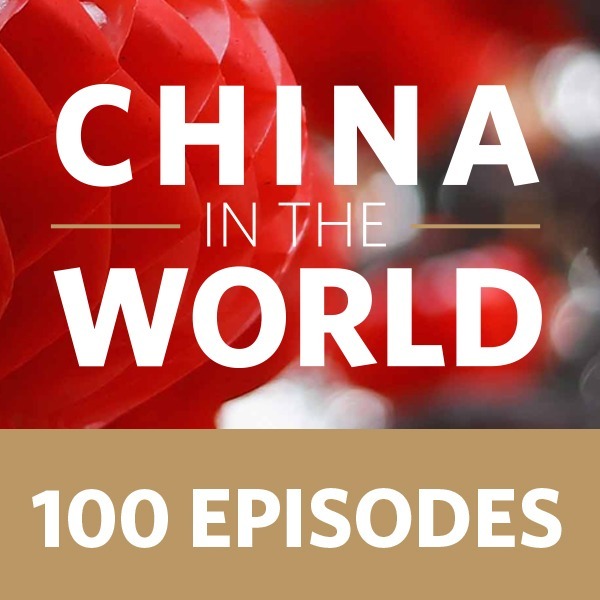
Ambassador William J. Burns served for over three decades at the highest levels of the U.S. government shaping U.S. foreign policy through significant international moments. Now, as president of the Carnegie Endowment for International Peace, Ambassador Burns spoke with Paul Haenle about future of U.S. diplomacy, the rise of China, and the Trump-Kim summit in Singapore.
Resetting China-India Relations in Wuhan
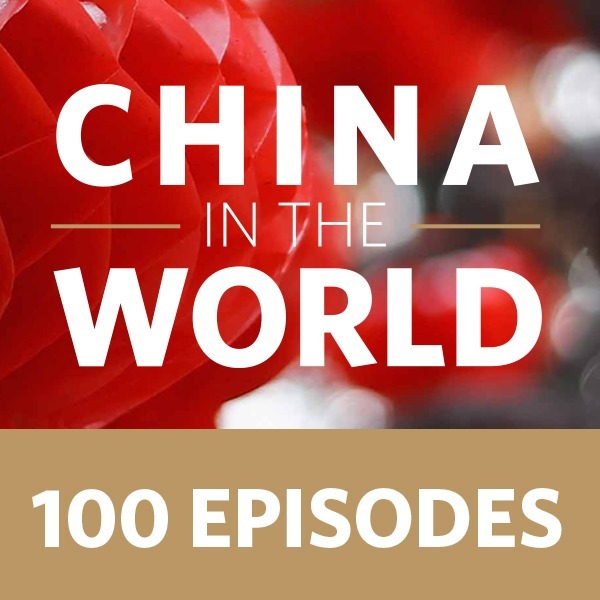
Following a year marked by mounting tensions between China and India, President Xi Jinping and Prime Minister Narendra Modi met in Wuhan for an informal summit in April to reset the relationship. On the heels of their meeting, Paul Haenle sat down with C. Raja Mohan, director of Carnegie India, to discuss the implications for the future of China-India relations.
What Comes Next: The Panmunjom Summit
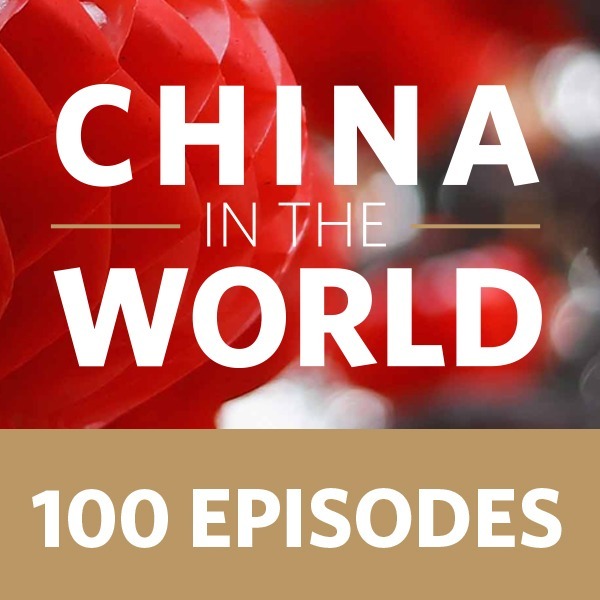
Kim Jong-un became the first North Korean leader to step foot in South Korea at the Panmunjom Summit in April 2018, setting the stage for President Trump’s meeting with Kim in June. Just days after the summit, Paul Haenle spoke with Dr. Tong Zhao, a fellow in the Nuclear Policy Program based at the Carnegie–Tsinghua Center for Global Policy, on the significance of the Kim-Moon meeting and its implications for China and the United States.
The Rise of Populism and Implications for China
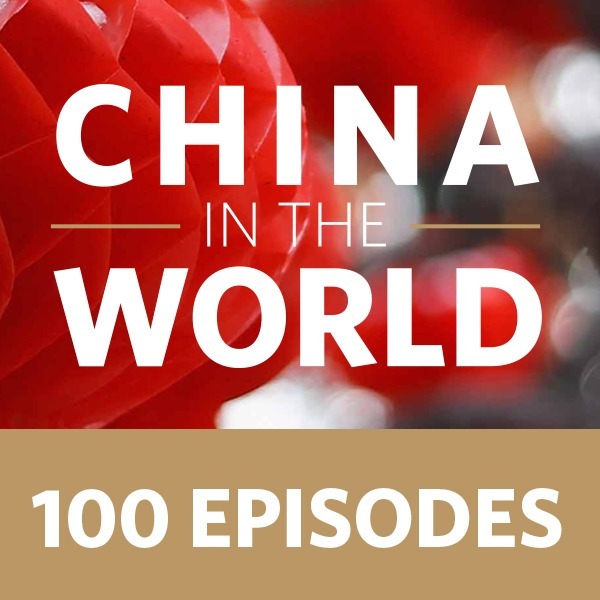
The rise of populism in Europe and United States has had a pronounced impact on domestic politics and foreign policy, as seen in Brexit and the election of Donald Trump. In this podcast, Paul Haenle sat down with Thomas Carothers, Senior Vice President for Studies at the Carnegie Endowment for International Peace, to discuss the rise of populist and anti-establishment movements and their implications for China.
Putin’s Fourth Term
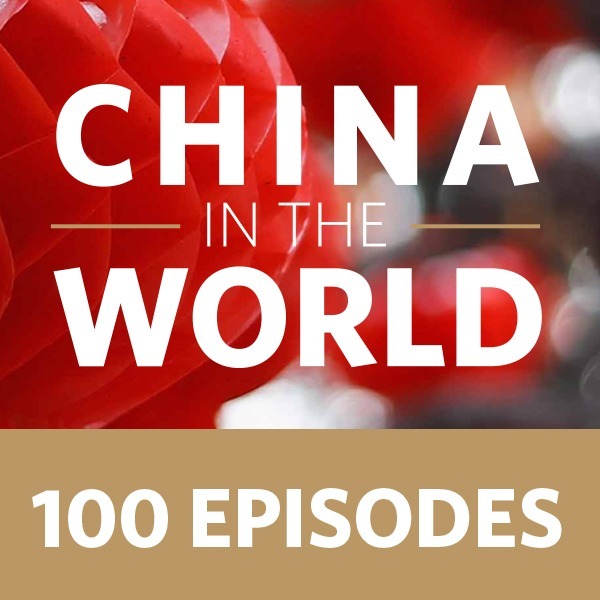
Vladimir Putin was elected to his fourth term as president of Russia on March 18, 2018. His continued leadership has important implications for the international community, including China. On this episode of the China in the World Podcast, Paul Haenle sat down with Alexander Gabuev, senior fellow and the chair of the Russia in the Asia-Pacific Program at the Carnegie Moscow Center, to discuss the state of Russia-China relations, including issues like the Belt and Road Initiative and North Korea.
Shifting European Perceptions of China
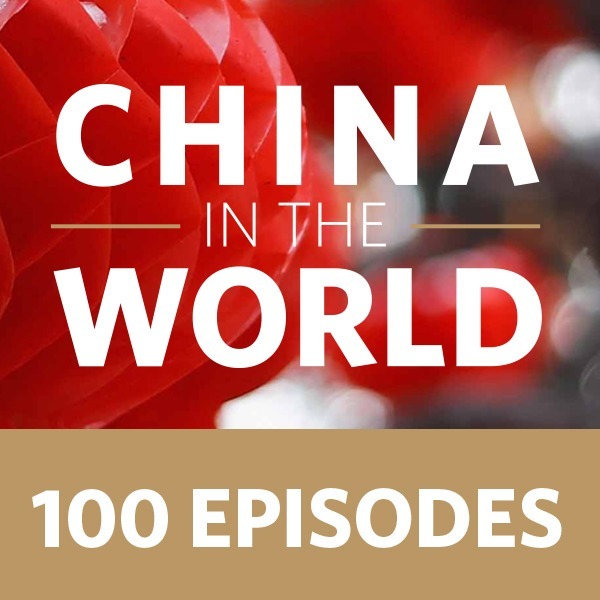
The rise of China and the election of Donald Trump have had major implications for Europe’s strategic outlook. European nations increasingly need to balance both the benign opportunities and malign consequences of increased Chinese investment and influence in the region. They must also take into account new frictions in the transatlantic relationship. In this podcast, Paul Haenle sat down with Erik Brattberg, director of the Europe Program and a fellow at the Carnegie Endowment for International Peace, to discuss similarities and differences in European and American engagement with China as well as shifting perceptions of China in Europe.
Jia Qingguo on the North Korean Nuclear Dilemma Pt. II
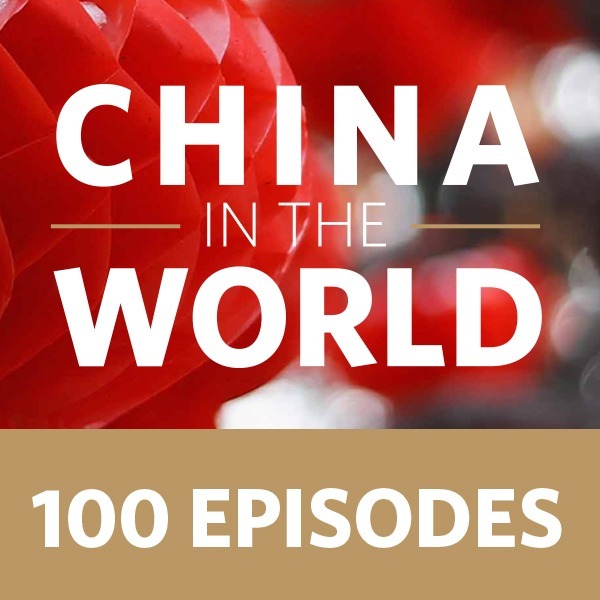
Changes in regional politics around the North Korea issue, including growing speculation about a preemptive U.S. strike on North Korea and a warming in North-South relations ahead of the PyeongChang Olympics have generated new debates in China on its North Korea policy. In part two of this two-part podcast, Paul Haenle sat down with Jia Qingguo, Dean of the School of International Studies at Peking University, to discuss the possibility of a preemptive military strike on North Korea, the stability of the North Korean regime, and the dangers of North Korea’s weapons program for international nuclear proliferation.
Jia Qingguo on the North Korean Nuclear Dilemma Pt. I
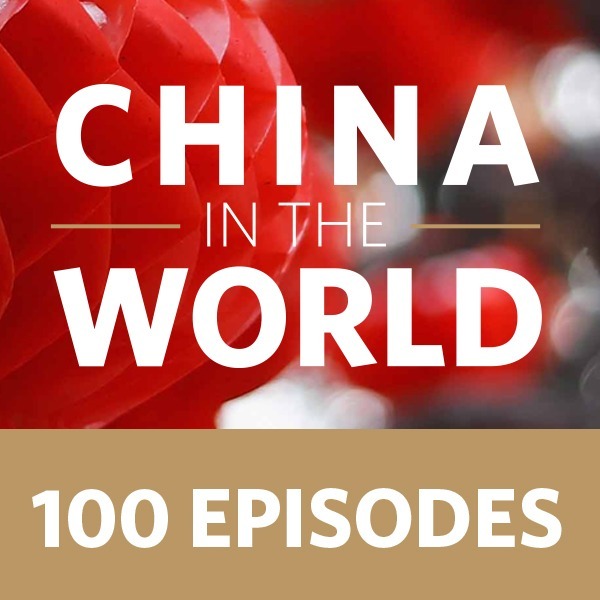
Changes in regional politics around the North Korea issue, including growing speculation about a preemptive U.S. strike on North Korea and a warming in North-South relations ahead of the PyeongChang Olympics have generated new debates in China on its North Korea policy. In part one of this two-part podcast, Paul Haenle sat down with Jia Qingguo, Dean of the School of International Studies at Peking University, to discuss recent shifts in regional geopolitics, debates around Chinese leverage over North Korea, and developments that could lead to greater U.S.-China cooperation to resolve the issue.
The 100th Episode: Stephen Hadley on New Realities in the U.S.-China Relationship
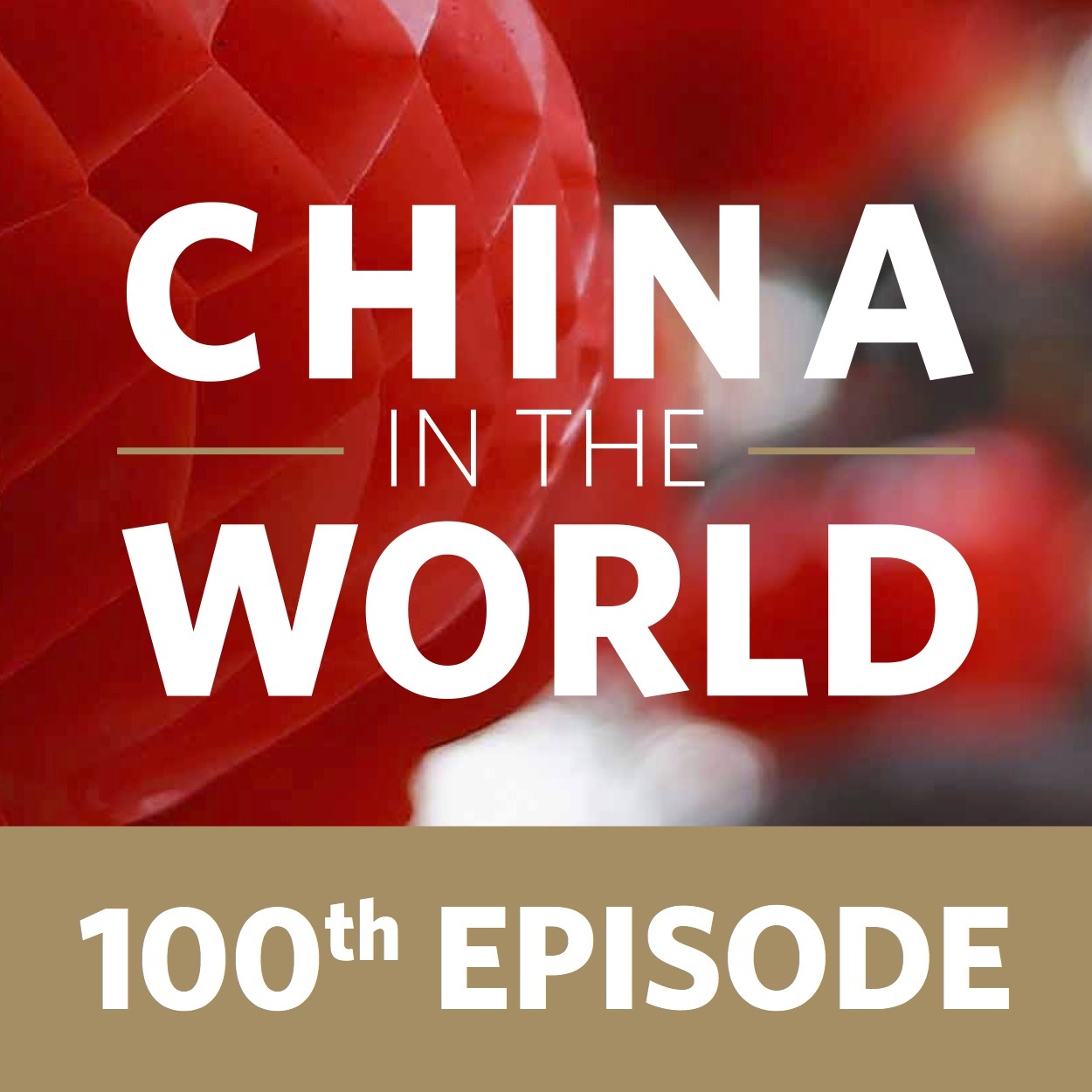
In 2013 on the first episode of the China in the World Podcast, Paul Haenle spoke with Stephen Hadley, former national security advisor to President George W. Bush, about the potential for a “new type of great power relations” between the United States and China. Four years later, on the 100th episode of the podcast, Hadley joined Haenle again to discuss how U.S. foreign policy has adapted to new realities in the bilateral relationship amidst a shifting global order.
Former U.S. Commerce Secretary Penny Pritzker on Commercial Diplomacy with China
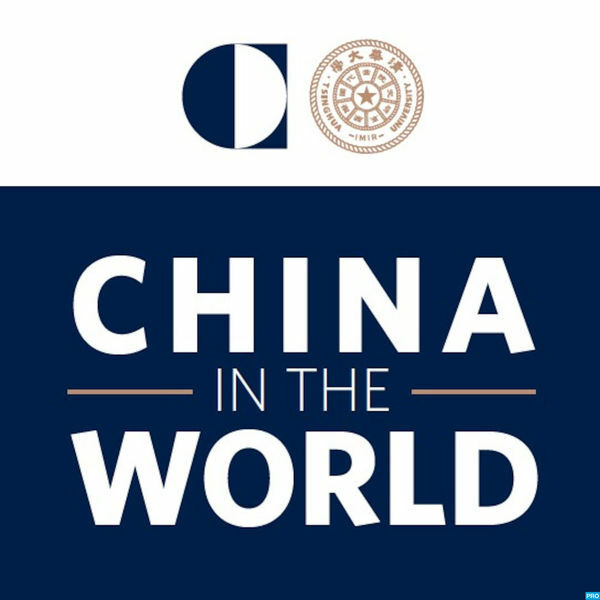
As the chief commercial advocate for US businesses in the policymaking process, the Commerce department plays a crucial role in the U.S.-China trade and economic relationship. In the 99th episode of the China of the World Podcast, Paul Haenle spoke with former U.S. Secretary of Commerce and founder and Chairman of PSP Capital, Penny Pritzker, to discuss the role of the Commerce Department in U.S. foreign relations.
Jake Sullivan on U.S. Global Leadership
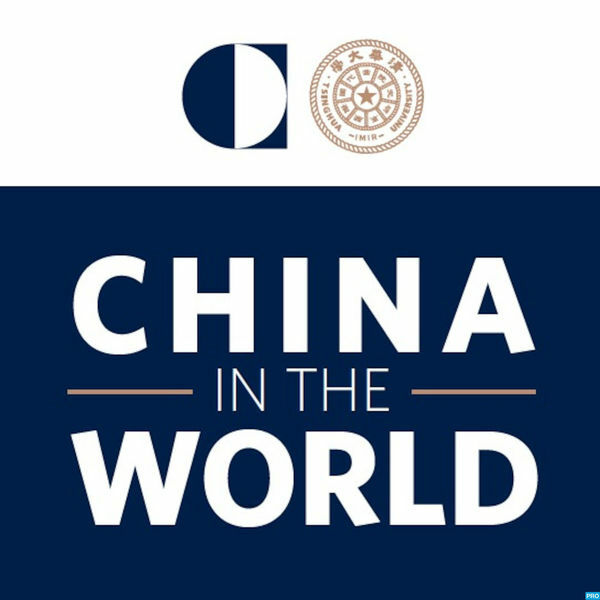
Power in the world is increasingly being measured and exercised in economic terms with China and other significant countries already treating economic power as a core part of their statecraft. But Jake Sullivan, a former senior official in the Obama administration, argues in this podcast with Paul Haenle that there is a disconnect in U.S. grand strategy in linking foreign policy with national economic policies. The U.S. policy community, Sullivan said, needs to examine how to better use economic tools and influence to advance national security objectives—questions that Sullivan is working to address in his new role as senior fellow in the Carnegie Geoeconomics and Strategy Program.
Breaking Down Trump’s Visit to Asia
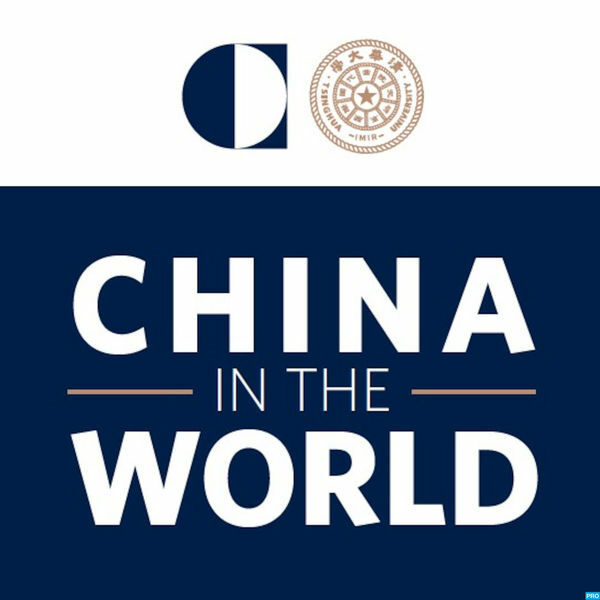
What is the future of geopolitics and U.S. engagement in the Asia-Pacific following President Donald Trump’s first official state visit to the region? In this podcast, Paul Haenle sat down with Daniel Russel, former special assistant to President Obama and senior director for Asian Affairs on the National Security Council, to discuss the major outcomes of Trump’s visit, the U.S. Indo-Pacific strategy, and the pressing security issue of North Korea.
The North Korean Nuclear Threat: The View From Beijing
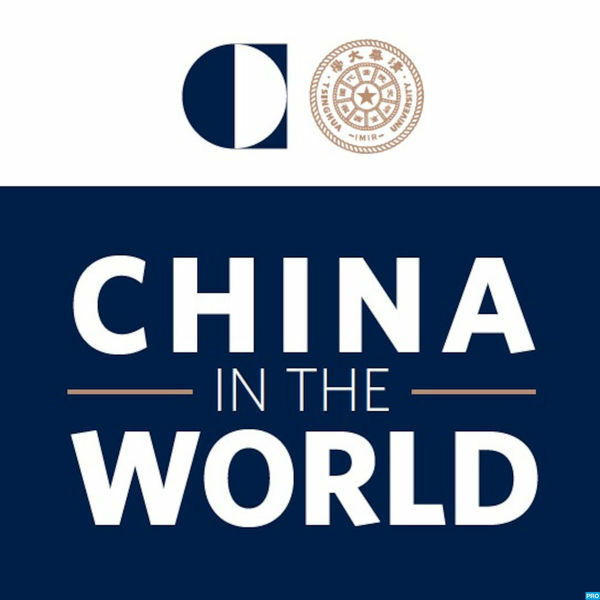
North Korea was atop the list of priorities for President Donald Trump during his first visit to China, but it remains to be seen how much substantive progress was made on bringing parties closer to dialogue toward the denuclearization of the Korean Peninsula. In this episode of the China in the World Podcast, Paul Haenle joined Carnegie Vice President for Communications and Strategy Jen Psaki on the Carnegie Endowment’s DiploPod podcast to discuss Chinese perspectives on North Korea and the outcomes of Trump’s visit to Beijing.
Yukon Huang on Why Conventional Economic Wisdom on China is Wrong
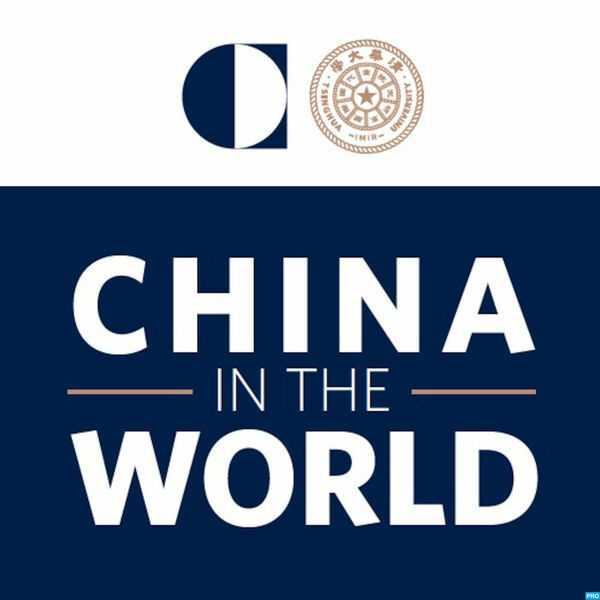
Despite intense scrutiny and analysis surrounding China’s economy, there is still no consensus on how best to understand China’s increasingly complex markets. How should we view China’s economy and what are key indicators for its future development? In this podcast, Paul Haenle sat down with Carnegie Senior Fellow Yukon Huang to discuss his new book, Cracking the China Conundrum: Why Conventional Economic Wisdom Is Wrong and evaluate pressing issues in U.S.-China economic relations.
Will China Change Its Approach to North Korea
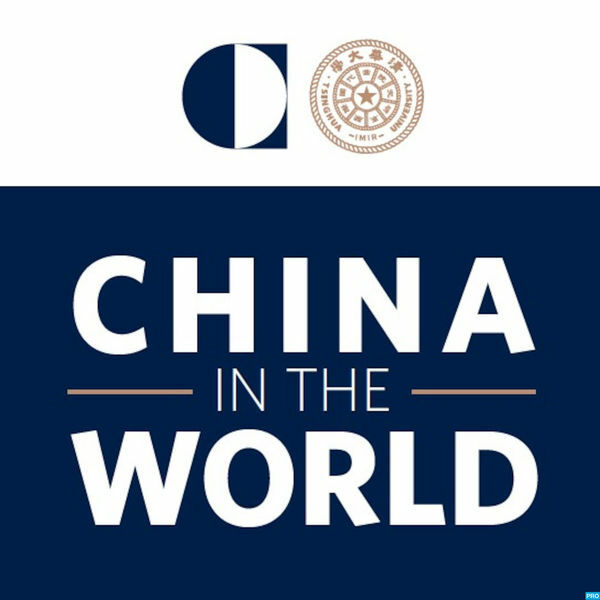
A fierce debate is raging in China over the best policy for dealing with North Korea’s nuclear and missile programs. Recent rhetoric between U.S. President Donald Trump and North Korean leader Kim Jung-un, in which both men publicly attacked and shamed each other, has further complicated and added urgency to that debate. In this podcast, Paul Haenle spoke with Dr. Cheng Xiaohe, an associate professor at the School of International Studies and Deputy Director of Center for China’s International Strategic Studies at Renmin University of China, to discuss the internal debate on China’s North Korea policy and understand the implications of Trump and Kim Jung-un’s heated rhetoric.
Approaching China’s “Red Line” on North Korea
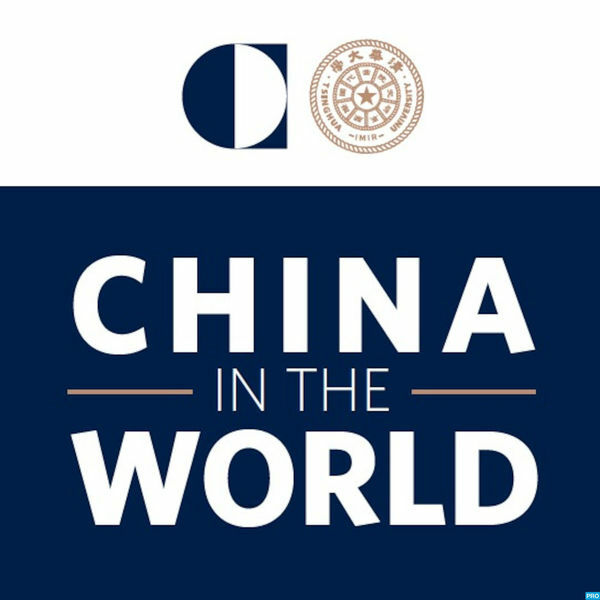
What are Chinese “red lines” when it comes to the Korean Peninsula? What further actions by Pyongyang might lead China to fundamentally shift its approach to one that involves more comprehensive pressure and sanctions, such as a complete oil embargo? In this podcast, Dr. Tong Zhao, a fellow in Carnegie’s Nuclear Policy Program based at the Carnegie–Tsinghua Center for Global Policy, tells Paul Haenle that while the sixth nuclear test did not cross a Chinese “red line”, there are actions North Korea could take that would do so.
Most notably, if North Korea were to launch a nuclear warhead and detonate it over the Pacific Ocean, that would cross Beijing’s “red line” and lead to a significantly harsher stance towards the regime, Zhao argued. This is especially alarming given statements by North Korea’s Foreign Minister, Ri Yong Ho, on September 22nd, that indicated North Korea may be preparing to do just that.
Cyber Norms in US-China Relations
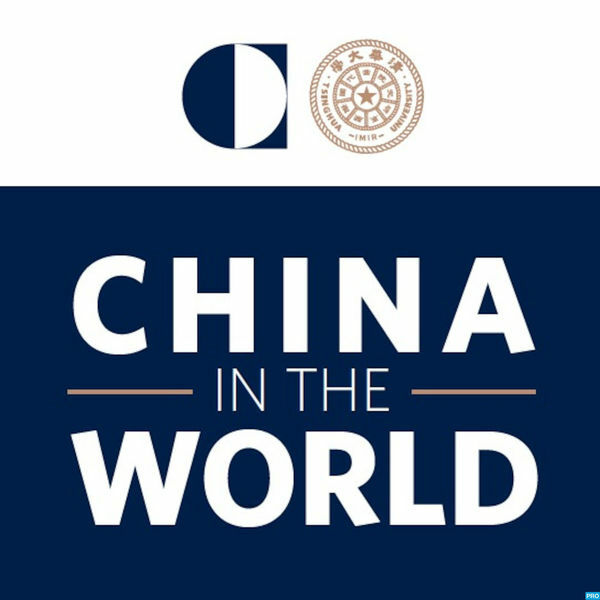
The United States and China agreed in 2015 that neither government would support or conduct cyber-enabled theft of intellectual property, and committed to working with international partners to identify appropriate norms in cyberspace. Both countries are expected to continue discussions on a broad range of cybersecurity issues at the Law Enforcement and Cyber Security Dialogue, established during the Mar-a-Lago summit in April . In this podcast, Paul Haenle sat down with Tim Maurer, co-director and fellow at the Carnegie Endowment’s new Cyber Policy Initiative, to discuss the global debate surrounding cyber norms and the outlook for future collaboration on cybersecurity.
Yukon Huang on the U.S. Trade Deficit with China
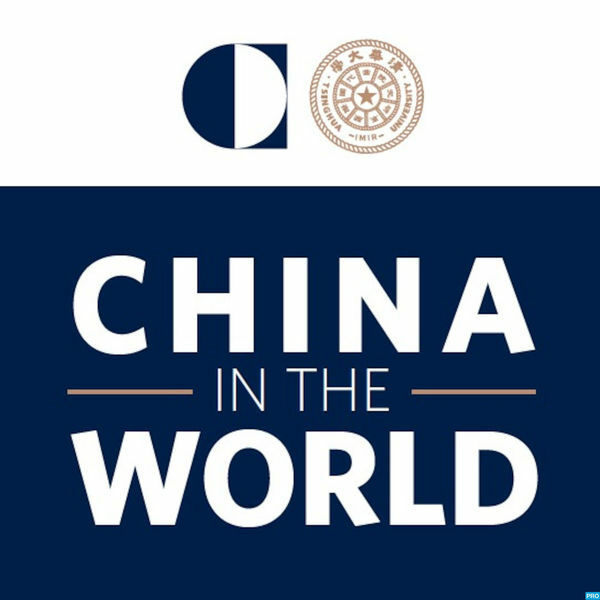
A positive relationship between the United States and China, the world’s two largest economies, is crucial for promoting global growth and development. The bilateral relationship, however, has become increasingly fraught by disagreements over what a “fair” economic relationship entails. In this podcast, Paul Haenle sat down with Carnegie Senior Fellow Yukon Huang to discuss major issues in U.S.-China economic relations.
Yukon explained that many Americans incorrectly attribute the United States’ large trade deficit with China to bilateral issues, when trade is inherently a multilateral dynamic. Yukon noted other factors which drive the U.S. trade deficit with China, such as the diverging average savings rate per household in the two countries. In the coming years, Yukon predicted U.S. companies will continue to advocate for China to loosen restrictive investment barriers, especially in the service sector. While China recently indicated it is willing to further open up industries to foreign investment, it remains unclear when these changes will go into effect. Yukon argued that as China continues to develop, regional trade agreements like the former Trans-Pacific Partnership will help apply outside pressure for China to implement domestic reforms. In his view, a regional trade agreement is in in the interest of all parties.
An “Alternative Future” for the Korean Peninsula
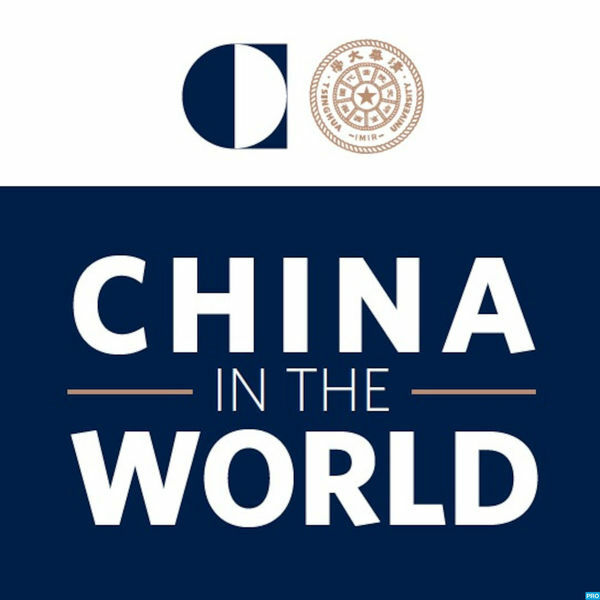
Despite widespread international condemnation of North Korea’s recent inter-continental ballistic missile test, strategic distrust and misperceptions continue to impede deeper cooperation between the United States and China on the nuclear issue. In this podcast, Paul Haenle sat down with Evans Revere, senior director at Albright Stonebridge Group and former principal deputy assistant secretary of state for East Asian and Pacific Affairs, to discuss the recent DPRK ICBM test and how the United States and China can respond to enhance regional security.
Differing Perceptions in U.S.-China Relations
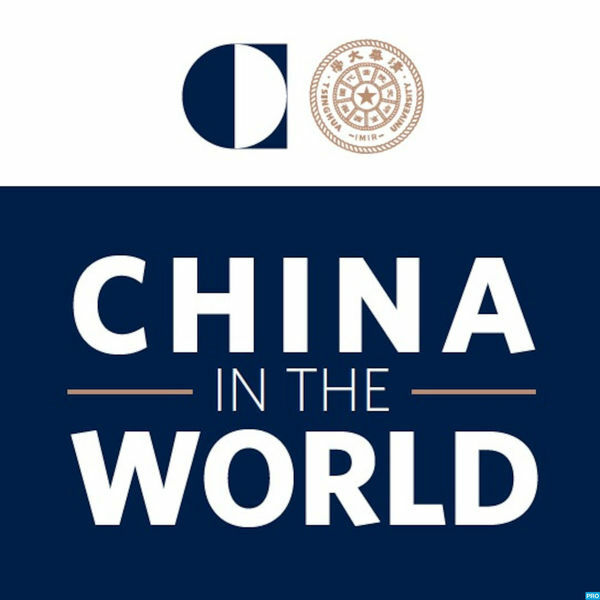
The United States and China have found areas for cooperation on global issues in recent years, including on the Paris Climate Agreement, the Iran nuclear deal, and global pandemics. Despite these successes, relations remain hindered by systematic mistrust and misunderstanding. In this podcast, Paul Haenle sat down with David Firestein, Perot fellow and senior vice president at the EastWest Institute, to discuss his recent report “’Alternative’ Strategic Perceptions in U.S.-China Relations,” which analyzes fundamental misconceptions that are impacting bilateral relations.
Are China’s New Naval Capabilities a Game Changer?
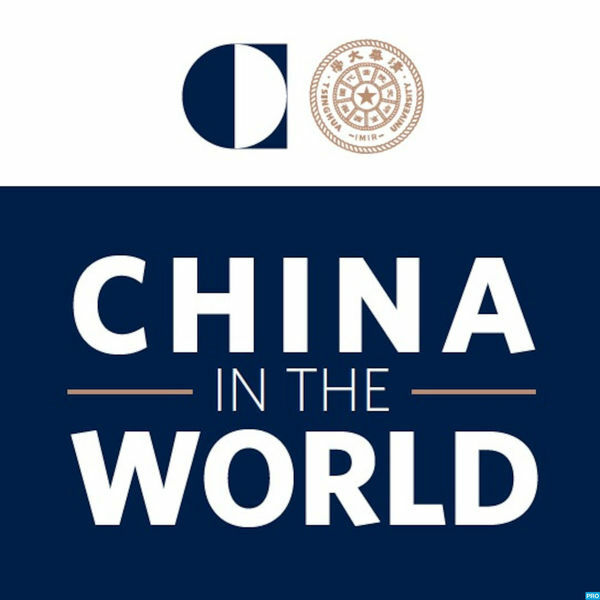
As the post-World War II order adjusts to a rising China, America’s predominance in the Asia-Pacific faces new challenges. Over the past five years, China has substantially built up its navy and demonstrated more assertive behavior toward its territorial claims in the South China Sea. In this podcast, Paul Haenle sat down with Robert Ross, a political science professor at Boston College and an associate at the John King Fairbank Center for Chinese Studies at Harvard University, to discuss the shifting tides in the Asia-Pacific and what this means for the new Trump administration.
What Do Trump’s Views on Europe Mean for China?
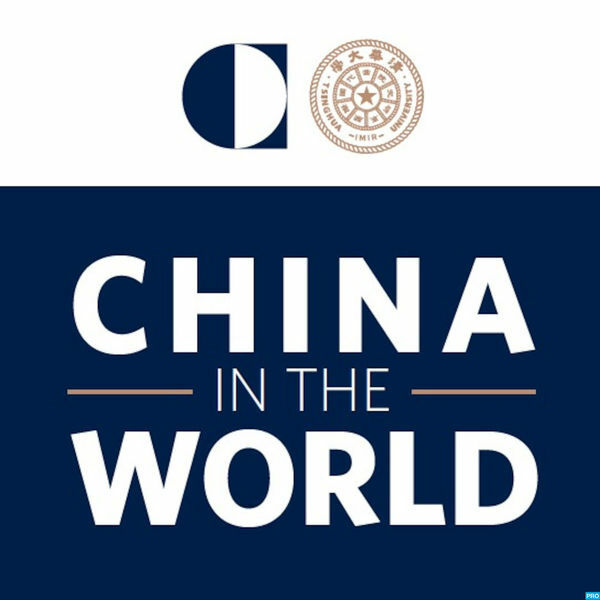
President Trump will travel to Europe in May for his first time since taking office to meet with EU leaders, attend a NATO meeting, and visit the organization’s headquarters in Brussels. Although he has walked back some of his more extreme criticisms of the European project and transatlantic organization from the campaign, Trump’s unpredictability remains a concern for many American allies. In this podcast, Paul Haenle sat down with Tomas Valasek, the director of Carnegie Europe and former permanent representative of the Slovak Republic to NATO, to discuss the future of transatlantic relations and what shifting dynamics across Europe could mean for China.
Evaluating Trump’s First 100 Days
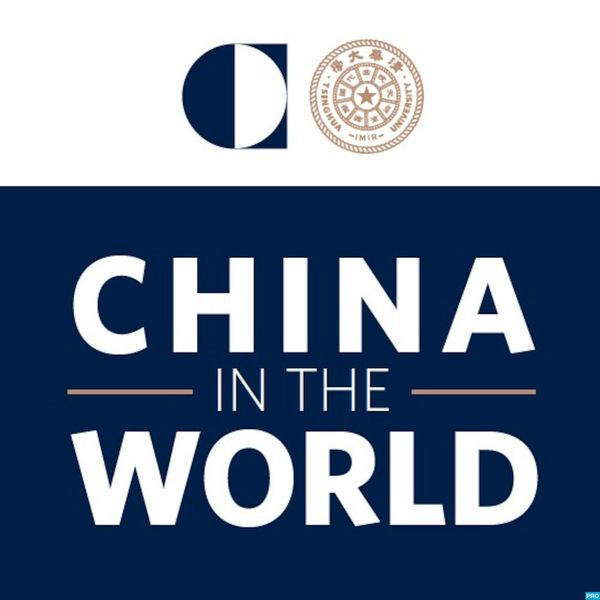
One hundred days into Donald Trump’s presidency, he has shocked the establishment and foreign governments with many foreign policy reversals, and also some surprising areas of consistency. In this podcast, Paul Haenle sat down with Jon Finer, former chief of staff to Secretary of State John Kerry and director of policy planning at the U.S. Department of State, to discuss the major takeaways from Trump’s first 100 days in office, and the future of U.S.-China engagement.
India Finds Its Place in a Trump World Order
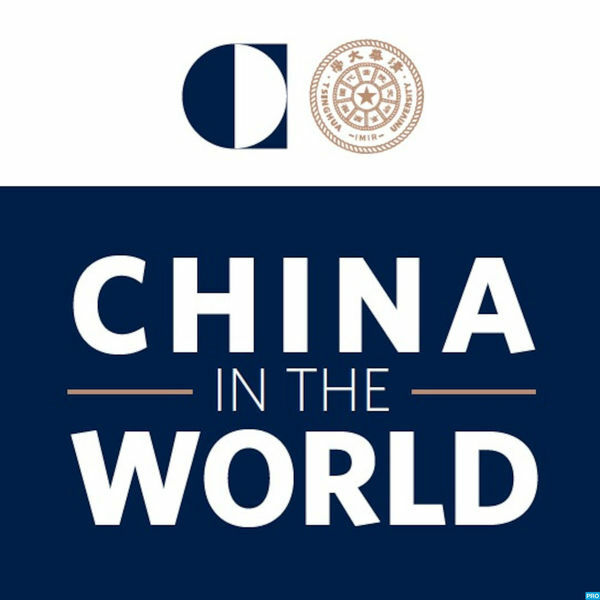
This fall, China and India’s leaders will meet during the 9th Annual BRICS Summit in Xiamen. The meeting comes on the heels of a tense year for the two countries, as long-simmering border disputes reignited and China blocked India's bid to join the nuclear suppliers group. In this podcast, Paul Haenle sat down with Raja Mohan, Director of the Carnegie Endowment’s Carnegie-India Center, to discuss India's shifting dynamics with the United States and China in the wake of Trump's election.
What Happened at Mar-A-Lago?
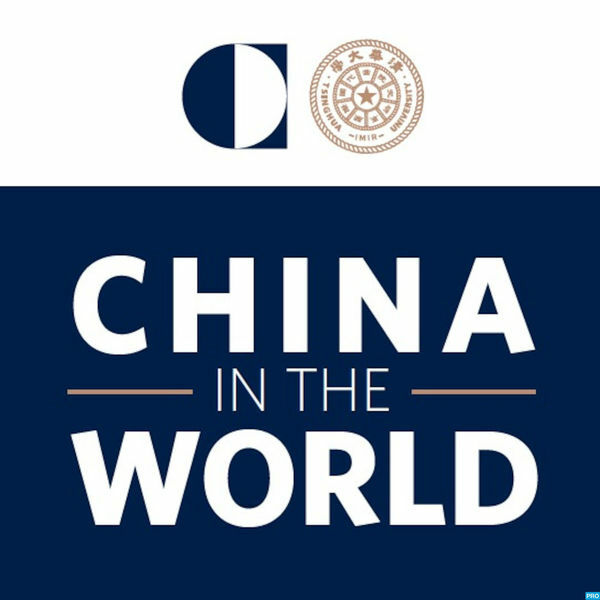
One week before their first in-person meeting, President Trump told the Twitter world that he expected the dialogue with his Chinese counterpart Xi Jinping to be "a very difficult one" unless China was prepared to make major concessions on issues like trade and North Korea. At Mar-a-lago, however, the two leaders appeared to build a congenial rapport. Shortly following their meeting, Paul Haenle spoke with Dr. Zha Daojiong, a professor of International Political Economy at Peking University and a Senior Arthur Ross Fellow at the Center on U.S. China Relations at the Asia Society, to discuss his reaction to the summit.
Ashley Tellis on Trump and Xi’s First Meeting
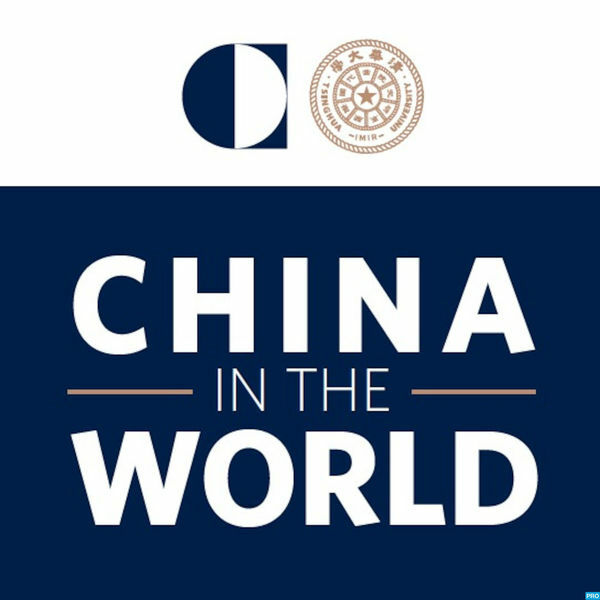
All eyes are on Mar-a-lago this week, where Chinese President Xi Jinping and U.S. President Donald Trump will meet for their first time. The summit is expected to be heavy on symbolism rather than on concrete deliverables, but the ability to set a positive tone and foundation for the relationship will be significant nevertheless. Ahead of this meeting, Paul Haenle discussed the Trump administration's foreign policy in its early months and expected outcomes for the Trump-Xi meeting with Ashley J. Tellis, a senior fellow at the Carnegie Endowment for International Peace and former special assistant to the President on the National Security Council under George W. Bush.
Trump's First Test: Asia with Michael Green Pt. 2
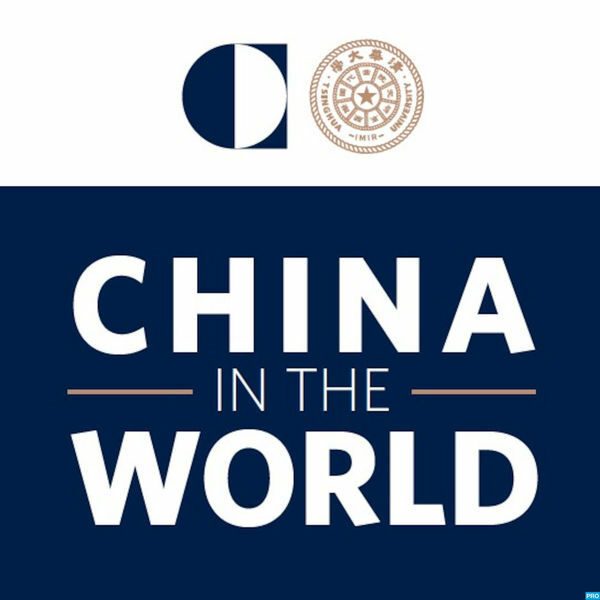
While President Trump appoints new officials to his administration and reviews policy frameworks, Asia-Pacific leaders are moving ahead. Since taking office, Trump has grappled with consequential developments in the region from North Korea's ballistic missile tests to the removal of South Korea's Park Geun-hye. In part two of this two-part podcast, Paul Haenle discussed the future of U.S. strategy in the Asia-Pacific under the Trump administration with Dr. Michael Green, CSIS Senior Vice President for Asia and Japan Chair, Georgetown University professor, and former senior director for Asia on the White House National Security Council.
Trump's First Test: Asia with Michael Green Pt. 1
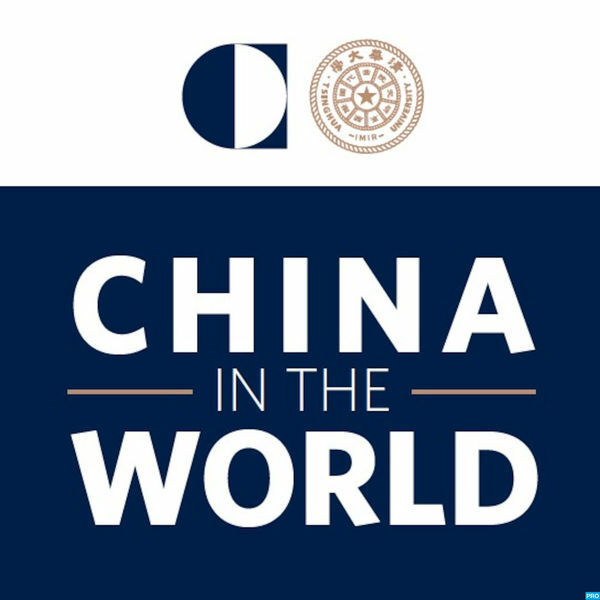
While President Trump appoints new officials to his administration and reviews policy frameworks, Asia-Pacific leaders are moving ahead. Since taking office, Trump has grappled with consequential developments in the region from North Korea's ballistic missile tests to the removal of South Korea's Park Geun-hye. In part one of this two-part podcast, Paul Haenle discussed the future of U.S. strategy in the Asia-Pacific under the Trump administration with Dr. Michael Green, CSIS Senior Vice President for Asia and Japan Chair, Georgetown University professor, and former senior director for Asia on the White House National Security Council.
What Would Closer U.S.-Russia Relations Mean for China?
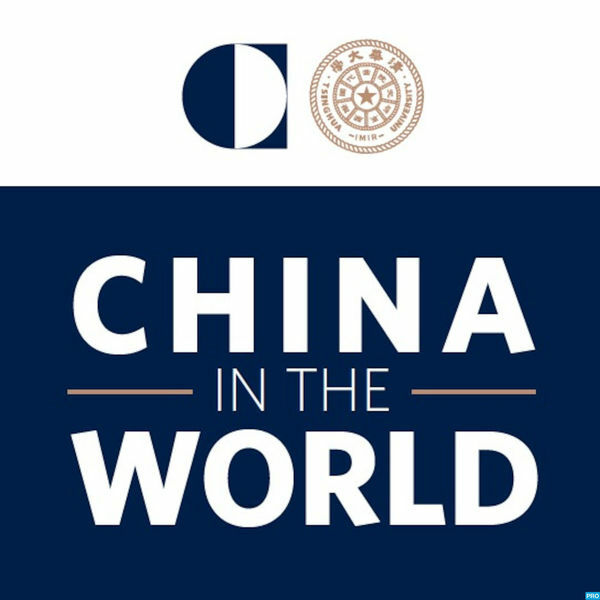
The Trump administration has spurred a debate in the United States on how to best manage the complex bilateral relationship with Russia. Paul Haenle sat down with Carnegie scholars Andrew Weiss, Paul Stronski, and Alexander Gabuev on the sidelines of the Carnegie Global Dialogue to discuss the implications of changes in the Trump administration's Russia and China policies for China-Russia relations.
Paul Haenle on U.S.-China Relations in the Trump Administration
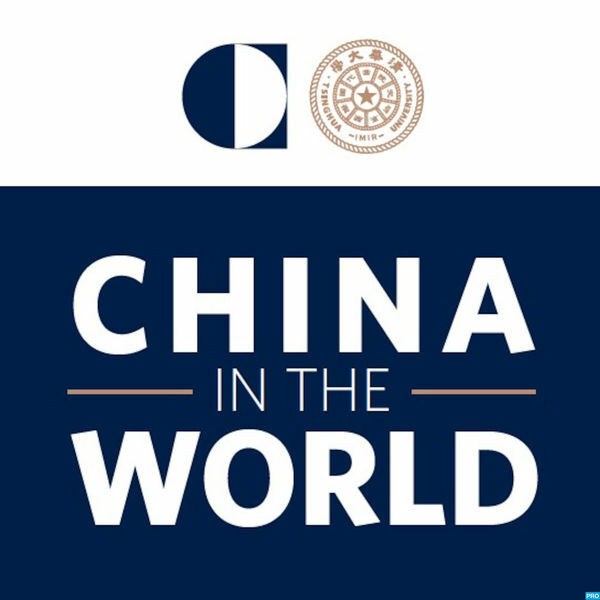
The U.S.-China relationship is pivotal to the world order. U.S. President Donald Trump has repeatedly criticized China during his campaign and since his inauguration. Carnegie-Tsinghua Center for Global Policy Director Paul Haenle sat down with Tom Carver, vice president for communications and strategy for the Carnegie Endowment for International Peace, to discuss Trump’s direct assaults on the cornerstones of the U.S.-China relationship, and assess the administration’s confrontational approach to questions such as the One China policy, the Trans-Pacific Partnership, and North Korea. Haenle also addressed the pressures facing Chinese President Xi Jinping as he approaches the 19th National Congress of the Communist Party of China, and how conceptions of China’s role in the world are shifting within the country.
Quick Take: Trump Will Honor US "One China" Policy
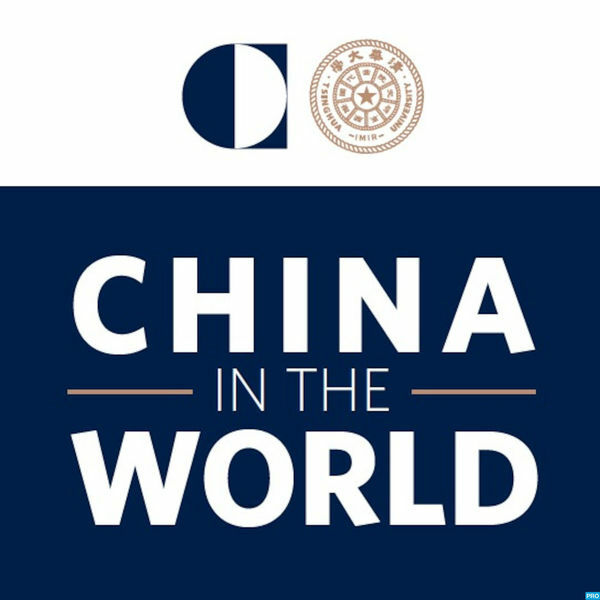
Dr. Evan Medeiros, former NSC Senior Director for Asian Affairs under the Obama administration, and Paul Haenle, former NSC China Director under the George W. Bush administration, pick apart the significance of President Trump's phone call to Chinese President Xi Jinping on Thursday night, in which Trump said the U.S. would honor our "One China" policy, and look at what's next in the U.S.-China relationship.
China’s North Korea Calculus under Trump

Two weeks into President Trump’s first term, the White House has launched a review of its North Korea policy. Dealing with the threat from Pyongyang's missile launches and nuclear weapons program is likely to top the administration's security agenda in the region. Paul Haenle spoke with Tong Zhao, a fellow in Carnegie’s Nuclear Policy Program based at the Carnegie–Tsinghua Center for Global Policy, about how North Korea and other regional security challenges will fit into the new context for U.S.-China relations under the Trump administration.
Chen Dingding on U.S.–China Relations Pt. 2
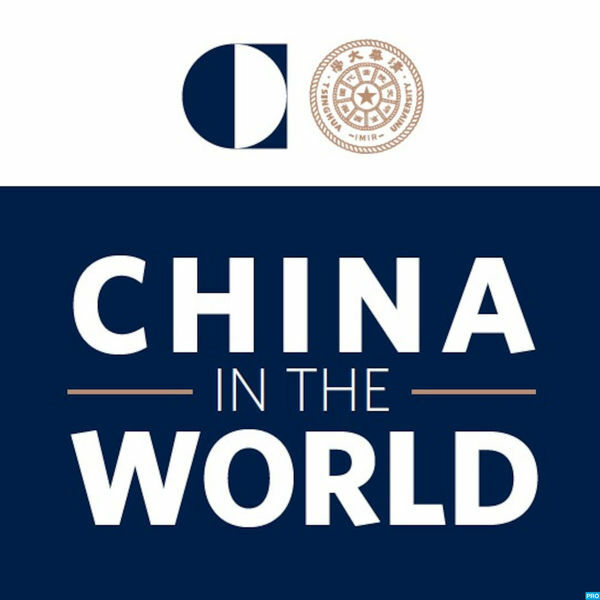
In the wake of Donald Trump's inauguration, uncertainty looms over the future of U.S China policy. In part two of this two-part podcast, Paul Haenle spoke with Chen Dingding, an international relations professor at Jinan University and Founding Director of the Intellisia Institute, about the Chinese reaction to Trump’s election and his views on how it could impact future bilateral relations.
U.S.–China Relations Leading Up to Trump’s Inauguration Pt. 1
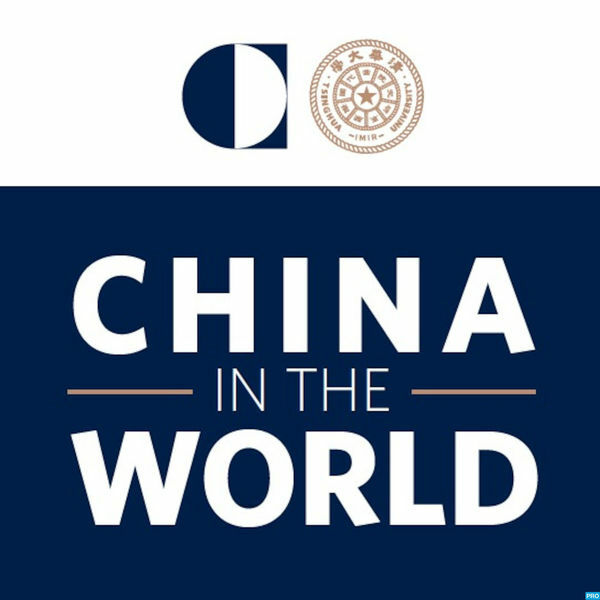
As Donald Trump’s inauguration approaches, uncertainty looms over the future of U.S China policy. In part one of this two-part podcast, Paul Haenle spoke with Chen Dingding, an international relations professor at Jinan University and Founding Director of the Intellisia Institute, about the Chinese reaction to Trump’s election and his views on how it could impact future bilateral relations.
China’s Growing Role in Battling Climate Change
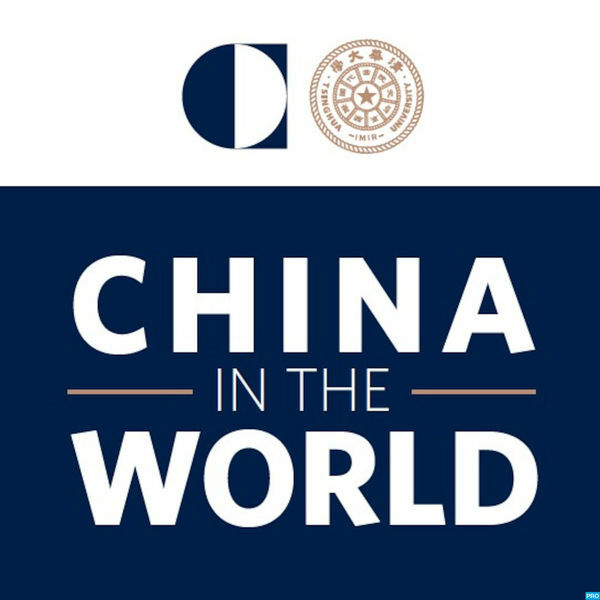
With the United States leadership role in the fight against climate change now being called into question, China has found itself in the unique position of being a global leader of the cause. In this podcast, non-resident Carnegie-Tsinghua Scholar Wang Tao spoke with Yang Fuqiang, a senior advisor on climate and energy at the National Resource Defense Council, about China's ongoing energy transition.
U.S.-China Trade Relations in the Trump era
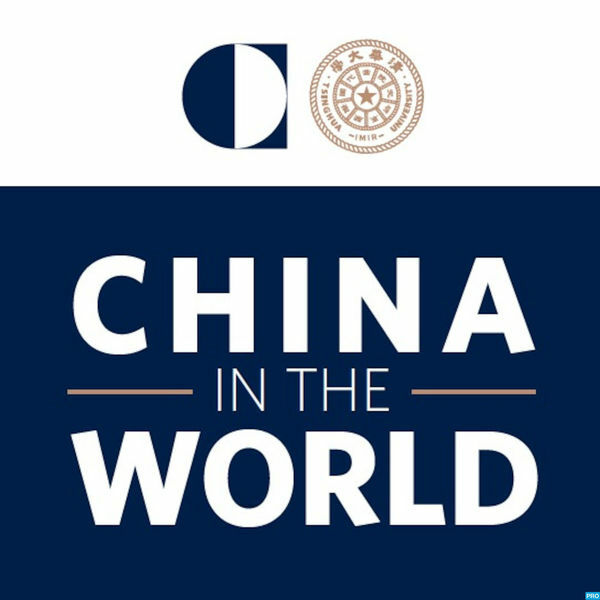
Donald Trump’s election promises to inject greater uncertainty and contention into the trade and investment relationship between the United States and China. In this podcast, Paul Haenle spoke with Claire Reade, a senior associate with the Freeman Chair in China Studies at the Center for Strategic and International Studies and a senior counsel at Arnold & Porter, about her experience shaping the development of U.S.-China trade and economic ties over the past decade.
Electing Donald Trump: The View from China
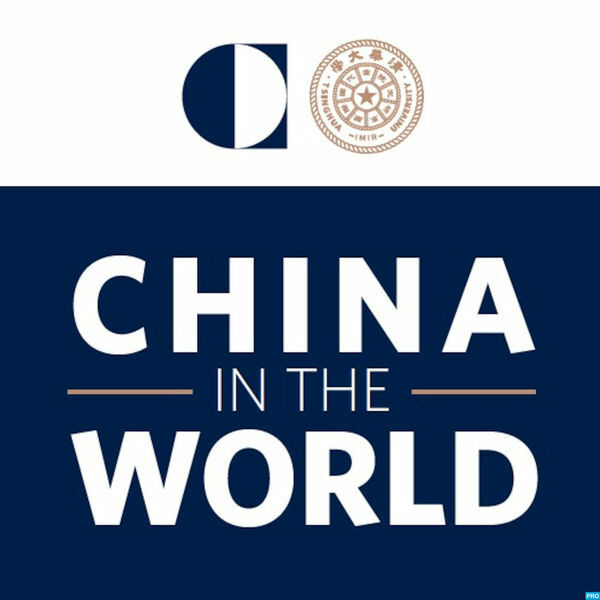
Donald Trump's election in the 2016 U.S. presidential race ushers in a period of considerable uncertainty in regard to the future of U.S. policies in the Asia-Pacific and vis-a-vis its relationship with China. In this podcast, Paul Haenle spoke with Dr. Zhao Hai, a research fellow at the National Strategy Institute at Tsinghua University, about China’s initial reactions to Donald Trump’s election and the implications for U.S.-China relations.
Law of the Sea and the US Elections with John Bellinger
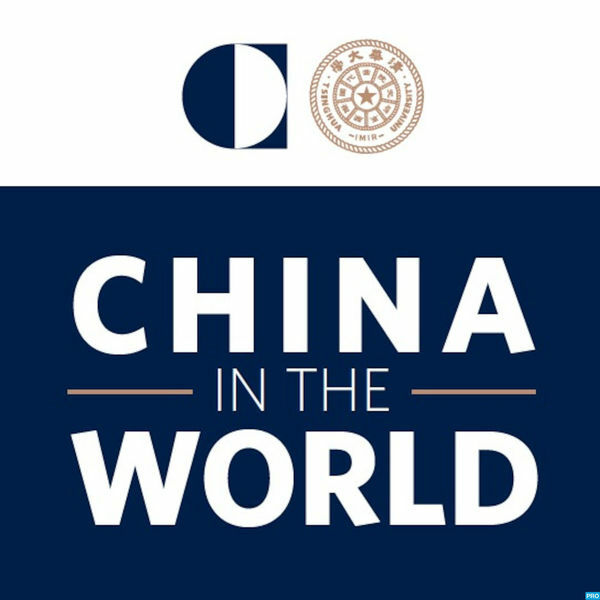
The South China Sea has been a central point of tension in the U.S.-China relationship under the Obama administration. In this podcast, Paul Haenle speaks with John Bellinger, the most senior international lawyer in the George W. Bush administration, about the implications of the July international tribunal ruling on the Philippines vs. China case, and why the U.S. is not a party to the Law of the Sea convention despite the support of consecutive bipartisan administrations. Bellinger also offers his thoughts on the upcoming U.S. presidential elections, noting that the threat of terrorism from actors such as ISIS, an increasingly assertive Russia in Europe and Syria, and developments in the North Korean nuclear program would be among the top foreign policy priorities for the next U.S. administration.
Adm. Roughead: What's Next on North Korea & the South China Sea?
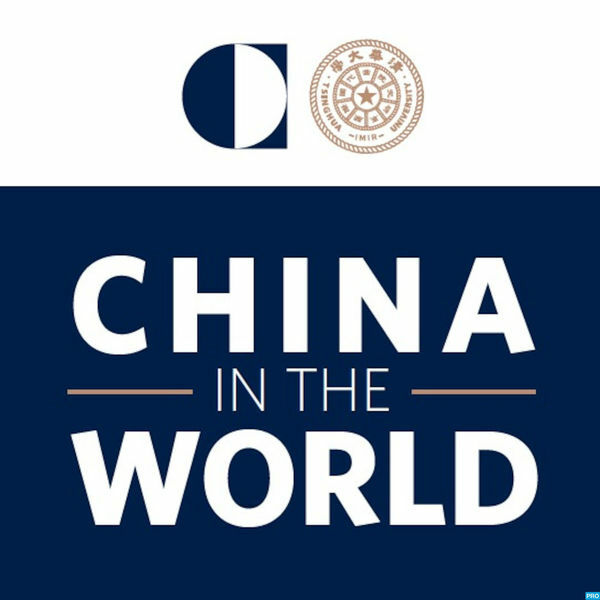
Paul Haenle and Adm. Roughead discuss what the US should do to enforce the tribunal ruling on the South China Sea and why North Korea's latest nuclear and ballistic missile tests are so significant.
America's Future in the Asia-Pacific Following the G20
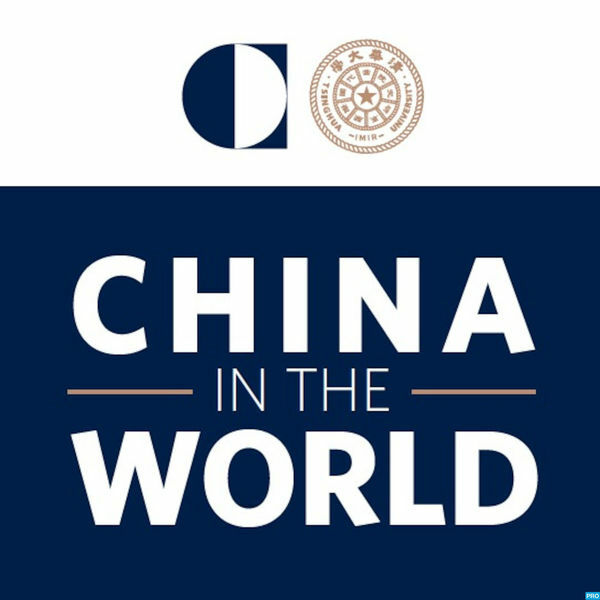
Carnegie-Tsinghua Director Paul Haenle speaks with Dr. Michael J. Green, senior vice president for Asia and Japan Chair at the Center for Strategic and International Studies, on topics such as the successes and failures of Obama's most recent trip to the G20 and ASEAN-U.S. Summit, tensions in the U.S.-Phillipines relationship, and North Korea's most recent nuclear test.
Dennis Wilder on U.S. - China Relations Past and Present Pt. 2
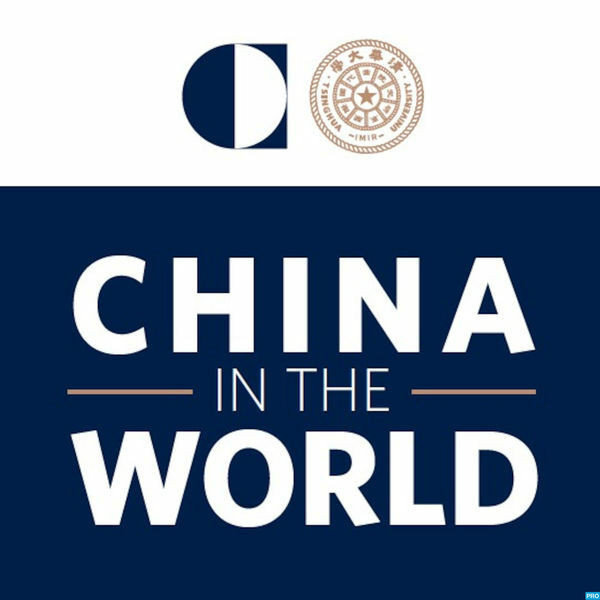
Dennis Wilder on U.S. - China Relations Past and Present Pt. 1
Elizabeth Economy on the South China Sea Tribunal Ruling
Uncertainty in China-Europe Relations
Carnegie-Tsinghua Director Paul Haenle speaks with Carnegie non-resident senior associate Francois Godemont about China's relations with Europe.
View from Moscow: China's Westward March
Speaking from the 3rd annual Carnegie Global Dialogue in Beijing, China, Carnegie-Tsinghua's Paul Haenle speaks with Carnegie Moscow's Dmitri Trenin about China-Russia relations.
Douglas Paal on China
Carnegie Endowment Vice President for Asian Studies Douglas Paal discusses the current international environment informing US foreign policy, developments in cross-Strait relations, and prospects for US policy toward China in the next administration.
China's relations with a "Strategic Europe"
Carnegie-Tsinghua's Paul Haenle speaks with the Director of Carnegie Europe, Dr. Jan Techau, about the future of the European Union, China-EU relations, and how the US factors into the dynamic.
Former Amb Stapleton Roy on U.S.-China Relations
As part of Carnegie's annual Global Dialogue in Beijing, former U.S. Ambassador to China, J. Stapleton Roy, joins CTC Director Paul Haenle to speak about U.S.-China relations and the South China Sea.
China-EU Trade and Economic Relations
A conversation with the President of the European Union's Chamber of Commerce in China, Joerg Wuttke, about EU-China trade and investment.
Is China's Belt and Road A Strategy?
Paul Haenle speaks with Professor Xie Tao about China's Belt and Road Initiative.
The 2016 Taiwan Elections with Dr. Shelley Rigger
Paul Haenle talks to leading Taiwan expert Dr. Shelley Rigger about the upcoming elections in Taiwan and what the outcomes will mean for Taiwan, cross-strait relations, and US-China relations.
China-India Nuclear Relations
Nuclear balance is a pillar of security in the Indo-Pacific region. China has continued to improve its second-strike deterrent capabilities. Meanwhile, India has gained greater access to foreign nuclear materials and technology to build a more advanced nuclear weapons program. These parallel developments have added new complexities to security interactions between Beijing and New Delhi that deserve careful attention from policymakers and other observers alike.
Chinese Leadership on Climate Change Ahead of Paris
Carnegie-Tsinghua Resident Scholar Dr. Wang Tao analyzes the new announcements on climate change cooperation made during President Xi's state visit to the U.S. in September 2015, and what they mean for COP21 in Paris in December.
Xi Jinping's State Visit to the US with Evan Medeiros
Dr. Evan Medeiros, President Obama's former senior director for Asian Affairs on the National Security Council, joins Paul Haenle to discuss the state of US-China relations and expectations for President Xi's first state visit to Washington on September 25, 2015.
What's going on with China's economy? Part 2
Carnegie Endowment Senior Associate Yukon Huang explains what was behind the yearlong surge and June 2015 crash of the Chinese stock market, and the broader disconnect between the Chinese stock market and its economic fundamentals. Part 2 of 3
What caused the Chinese stock market crash? Part 1 of 3
Carnegie Endowment Senior Associate Yukon Huang explains what was behind the yearlong surge and June 2015 crash of the Chinese stock market, and the broader disconnect between the Chinese stock market and its economic fundamentals. Part 1 of 3
How China’s Rise Affects Its Neighbors (Part 2)
In the second half of this two-part podcast, Garver provides a historical overview of U.S. strategic objectives in the Pacific and highlights how they are shaping U.S.-China relations today. He also discusses the implications of Xi Jinping’s proposal of mutual respect for core interests for U.S.-China diplomatic engagement in the future.
How China’s Rise Affects Its Neighbors (Part 1)
China’s foreign policy has shifted in recent years from a low-profile approach to a more proactive one. This change is evident in China’s growing diplomatic, economic, and military influence. John Garver and Tong Zhao discuss China’s emerging role in global affairs and how the United States and countries in the Asia-Pacific perceive this geopolitical shift.
Petcoke and China's Efforts to Combat Air Pollution
Petroleum coke, or petcoke, is a byproduct of the petroleum refining process that produces more greenhouse gas emissions than coal or natural gas. Paul Haenle and Wang Tao discussed how the substance, which is used to generate power and manufacture aluminum, is an overlooked complication to China’s efforts to combat climate change.
Wang pointed out that how the rising price of coal has led an increasing number of Chinese firms to turn to petcoke as an inexpensive alternative fuel, as they seek to manage costs. Noting that few Chinese policymakers are aware of petcoke’s environmental impact, Wang suggested that the Chinese government should consider more robust monitoring and data collection about petcoke use, as well as potential policy responses such as carbon taxes or import tariffs, as potential ways to minimize petcoke’s contributions to air pollution in China.
China-Russia relations after Ukraine
Carnegie Moscow Director Dmitri Trenin talks about warming China-Russia relations after the Ukraine crisis.
Regional Security Challenges and U.S. Nuclear Posture
In this podcast, Tong Zhao and Matthew Kroenig discuss U.S. policy options in the event that nuclear negotiations with Iran fall through and the future outlook of NATO nuclear posture in Europe.
Russia's Pivot to Asia with Alex Gabuev
Carnegie Moscow's Alexander Gabuev talks with Paul Haenle about Putin's pivot to China.
中国天然气价格调整及影响
今年年初,国家发改委宣布从4月1日起,中国天然气价格正式并轨。这是中国价格改革中首次大幅下调天然气价格。在清华—卡内基全球政策中心的首期《中国与世界》中文系列播客中,驻会研究员王韬与中国石油大学的董秀成教授讨论了此次调价的背景和大环境。他们还对天然气价格下调对相关产业的影响及中国的能源安全问题进行了深入探讨。
Debunking the Myths of China's Economy Part 2
Former World Bank China Director Yukon Huang debunks more myths about China's economy: Are China's cities really too crowded and too large? Is the US trade deficit caused by China’s trade surpluses? Why do views on China's economy differ so much? Listen to find out.
The Nuclear Framework Agreement and China-Iran Relations
Tong Zhao sat down with Ariane Tabatabai, an expert on Iranian nuclear affairs, to discuss the recent P5+1 framework agreement and follow-up negotiations to occur before June, China’s role in the negotiations, and the future of China-Iran diplomatic and economic relations.
Debunking the Myths of China's Economy with Yukon Huang
Carnegie economist Yukon Huang's answers to these three questions about China's economy will surprise you:
Is China dealing with a debt crisis, or rather a property related financial deepening?
Are China’s debt problems a financial or fiscal issue?
Is China’s growth unbalanced, and is this unbalanced growth a vulnerability or benefit?
Global Energy Markets and Subsidies for Renewables in China
Wang Tao and Johannes Upperlainen discuss how renewable sources of electricity production, Chinese government subsidies for the sustainable energy sector, and low oil prices are shaping China's energy markets and policies.
China's Greater Role in South and Central Asia
Carnegie-Tsinghua's Paul Haenle talks with former U.S. Deputy Assistant Secretary for Defense David Sedney about China's relations with India and Pakistan, China's New Silk Road initiative, and opportunities for US-China cooperation in Afghanistan.
U.S. Nuclear Posture and Nonproliferation in East Asia
In part two of this podcast, Tong Zhao and Elbridge Colby discuss possible changes to U.S. nuclear doctrine, the potential for maintaining nuclear nonproliferation efforts in East Asia, and the future prospects of international arms control.
A Larger Role for U.S. Nuclear Weapons in East Asian Security?
Carnegie–Tsinghua’s Tong Zhao and Elbridge Colby discuss recent changes to U.S. military doctrine, possible changes in the Asia-Pacific’s military balance, and the possibility of a regional conflict escalating to the nuclear threshold. Colby highlighted the importance of arms control agreements in avoiding military escalation, but he expressed reservations about the feasibility of certain measures.
China's New Silk Road with Wang Tao
Carnegie-Tsinghua's Dr. Wang Tao offers an overview of Chinese President Xi Jinping's Silk Road project and the energy security objectives of the “One Belt and One Road” strategy. He ends by discussing the implications of falling oil prices for China/
Iran Nuclear Talks with Dr. Ariel Levite
With the negotiations over Tehran’s nuclear program extended to the end of June 2015, Paul Haenle sits down with Dr. Ariel "Eli" Levite, a nonresident senior associate in the Nuclear Policy Program at the Carnegie Endowment, to discuss the prospects for those negotiations and a broader Iran-US opening.
Conventional Prompt Global Strike with James Acton
Carnegie's James Acton examines the status of the U.S. Conventional Prompt Global Strike program and assesses its implications for Asia-Pacific and global security. Acton considers the potential for the US and China to explore confidence-building measures that could reduce the risks of developing hypersonic weapons and instead enhance strategic stability.
US-China military to military relations
In the second half of their interview, Randy Schriver, former Deputy Assistant Secretary of State for East Asian and Pacific Affairs, speaks with Paul Haenle about the military to military agreement announced at the November Xi-Obama summit and prospects for greater future strategic cooperation.
Obama's Trip to Asia with Randy Schriver
Randy Schriver, Former Deputy Assistant Secretary of State for East Asian and Pacific Affairs, joins Carnegie-Tsinghua's Paul Haenle to assess President Obama's trip to Asia for the APEC Leaders Meeting, Xi-Obama bilateral summit, US-ASEAN Summit and G20 meeting.
Iran Nuclear Talks & The Middle East Peace Process
Peking University Professor Wu Bingbing talks to Carnegie-Tsinghua's Paul Haenle about China's perspective the Middle East peace process, the Iran nuclear talks and Chinese efforts to enhance military cooperation with Tehran.
China's role in the Middle East with Wu Bingbing
How will China confront the growing challenges in the Middle East, from Syria to Iran and ISIS? Peking University Professor Wu Bingbing explains in conversation with Carnegie-Tsinghua's Paul Haenle.
Xi's trip to India with Ma Jiali
Carnegie-Tsinghua Director Paul Haenle interviews China Reform Forum's Professor Ma Jiali about Chinese President Xi Jinping's visit to India in September 2014 and the broader bilateral relationship under Prime Minister Modi.
China's Nuclear Future Part 2
CTC's Tong Zhao, Xiamen University's Professor Li Ning, and Carnegie's Mark Hibbs continue their discussions on China’s plans for the development of its nuclear energy program. Can China reach its plan's ambitious goals of fast nuclear energy growth and at the same time keep its nuclear energy program safe, secure, and sustainable? Listen here to the final half of their fascinating conversation.
China's Nuclear Future
CTC's Tong Zhao, Xiamen University's Professor Li Ning, and Carnegie's Mark Hibbs discuss China’s plans for the development of its nuclear energy program. Can China reach its plan's ambitious goals of fast nuclear energy growth and at the same time keep its nuclear energy program safe, secure, and sustainable? Listen here to part one of two of their fascinating conversation.
Progress or Paralysis on Addressing Climate Change?
Carnegie-Tsinghua's Wang Tao interviews Dr. Zou Ji, deputy director of China’s National Center for Climate Change Strategy, about recent developments in international cooperation on climate change, and prospects for the UN Climate Summit in September 2014.
The US-China BIT and Shanghai FTZ with Tim Stratford
In the second half of our conversation between Carnegie-Tsinghua's Paul Haenle and former USTR Tim Stratford, Stratford shares insights on progress on the U.S.-China Bilateral Investment Treaty (BIT) and the Shanghai Free Trade Zone (FTZ).
The TPP & RCEP: Regional Trade Agreements with Tim Stratford
Former Assistant U.S. Trade Representative, Tim Stratford, discusses the Trans-Pacific Partnership Agreement and the Regional Comprehensive Economic Partnership with Carnegie-Tsinghua Director Paul Haenle.
China-Pakistan Relations with Dan Markey
Paul Haenle and CFR’s Dan Markey discuss the 2014 political transitions and uncertainties in India, Pakistan, and Afghanistan, and how they will affect the China-Pakistan relationship.
One Year After Sunnylands: Assessing the U.S.-China Relationship
Audio recording of May 28, 2014 event at Carnegie DC with Carnegie-Tsinghua's Yan Xuetong and Sun Xuefeng, and Carnegie's Paul Haenle and Yukon Huang, moderated by George Perkovich on the state of U.S.-China relations.
Assessing China’s Foreign Policy with Xie Tao, Part 2
Professor Xie Tao offers his analysis of China's seemingly contradictory policy statements toward its relations with its neighbors and its recent assertive actions in the Asia-Pacific.
Assessing China's Foreign Policy Under Xi with Xie Tao
At the 2014 National People's Congress, Chinese Foreign Minister Wang Yi described China's diplomacy in the first year under President Xi Jinping in one word: "active." What does that really mean, are there limits to this new posture, and where have we seen a more active Chinese diplomatic approach--both regionally and internationally? Listen to find out!
The US-Japan Alliance with Michael Swaine Part 2
China sees itself as the power that has growing influence in Asia, but that still is highly dependent on the position and attitude of the United States. The real challenge for the new type of great power relations between the US and China is how the two powers can establish an understanding over the future changes to US maritime predominance in Asia.
The US-Japan Alliance with Michael Swaine Part 1
The United States and Japan must strike a delicate balance between improving the alliance’s ability to anticipate and respond to crises and being perceived by China as attempting to contain it’s rise or remilitarize Northeast Asia.
Chinese Nuclear Security Cooperation
Carnegie-Tsinghua's Paul Haenle and Li Bin discuss the recently concluded Third Nuclear Security Summit, China's nuclear security concept, and its contributions to international nuclear security.
Debunking the Myths of China's Perspective on North Korea, Part 2
In the second half of Carnegie-Tsinghua's Paul Haenle's interview with Peking University's Wang Dong, the experts discuss the opportunities and obstacles to forging a united diplomatic approach to the North Korea issue.
Debunking the Myths of China's Perspective on North Korea with Dr. Wang Dong, Part 1
North Korea’s nuclear program is a source of tension not only in the region, but also in U.S.-China relations. Washington sees Beijing as enabling nuclear proliferation, while Beijing argues that their approach is less costly and more effective than U.S. pressure.
The View from Moscow: The Ukraine Crisis, Part 2
While the West accuses Putin of dealing with Ukraine over the barrel of a gun, Russians largely commend his role in helping Crimea make the right historical choice, in their view, to side with Russia. Carnegie Moscow Director Dmitri Trenin speaks with Paul Haenle about the Crimea referendum and Ukraine's future in the second half of their interview.
The View from Moscow: The Ukraine Crisis
In the lead up to Crimea’s referendum to join Russia, leading Russia expert Dmitri Trenin in Moscow talks to Paul Haenle about Ukrainians' true aspirations, Putin's thinking, the West's leverage, and the impact of the Ukraine crisis on the Russia-China relationship.
China's perspective on the Ukraine crisis
As tensions continue to mount in Ukraine, the international community is watching China’s position on the crisis with great interest. The stakes are high for China, but for now, Beijing is trying to avoid taking a clear stance, hoping that it will be well positioned whatever the outcome.
China's Peaceful Development Policy with Matt Ferchen
Carnegie-Tsinghua's Paul Haenle speaks with Resident Scholar, Matt Ferchen, who argues China’s relations with developing countries must move past the concept of peaceful development and focus on addressing concrete policy challenges shared by both sides.
'Reverse Haggling' with Shi Han
When Chinese companies "reverse haggle", they suppress China's economic growth and do harm to China's foreign business environment.
China-Africa Relations With Tang Xiaoyang
China’s rapid development can offer inspiration and direction for Africans, but Africa’s leaders must translate the lessons of China’s experience into a path that fits local contexts.
The Challenges of a Rising China with Dr. Ely Ratner
China’s military modernization and maritime assertiveness present challenges for the U.S.-China relationship. Middle powers can play a meaningful role in encouraging more constructive Chinese participation in maintaining international security.
U.S. Policy in the East Asia and Pacific Region with Dr. Patrick Cronin
Patrick Cronin of the Center for New American Security talks with Carnegie-Tsinghua’s Paul Haenle about U.S. security objectives in Asia and the importance of a strong and stable U.S.-China relationship.
Rumblings from North Korea with Zhu Feng
The December 13 execution of Kim Jong-Un’s uncle and regent, Jang Song-Thaek, shocked experts worldwide due to its unusual publicity and its proximity to Pyongyang's all powerful leader, Kim Jong-un. Why was Jang purged?
Peking University Professor Zhu Feng suggests the brutal, public nature of the execution reflects growing anxiety among military hardliners in North Korea and their desire to eliminate not just Jang but also his followers. Jang had a reputation in China as a trusted interlocutor who favored Chinese-style economic reform and an expanded China-North Korea trade relationship. The published descriptions of Jang’s crimes include what seem to be veiled attacks on China, including that Jang was selling off North Korean mining resources and land at cheap prices to a foreign country (China). Zhu says it is too early to see what affect these accusations will have on bilateral relations.
Zhu believes it is less likely that Kim will stage a provocation in the aftermath of the purge, as the young leader needs to deal with the destabilizing effects of the reshuffling and focus on finding replacement authorities. If Kim does commit a further provocation, Zhu says, he risks completely alienating Beijing. Zhu adds that Beijing and Washington should intensify cooperation and candid discussions on working together to address the North Korea issue.
Recharging China’s Electric Vehicle Policy with Dr. Wang Tao
Carnegie–Tsinghua’s Paul Haenle speaks with resident scholar Wang Tao about sustainable solutions to help China better support its burgeoning electric vehicle industry.
China's Security Challenges with Christopher Johnson
Carnegie-Tsinghua’s Paul Haenle talks with Chris Johnson of the Center for Strategic and International Studies (CSIS) about Beijing’s new air defense identification zone (ADIZ) and China’s broader security environment.
China's Maritime Security with M. Taylor Fravel
Carnegie-Tsinghua’s Paul Haenle talks with MIT’s Taylor Fravel about China’s regional maritime strategy, the implications of its new neighbor diplomacy for U.S.-China relations, and the significance of China’s new national security committee.
China’s Evolving Foreign Policy with Dr. Wang Yizhou, Part 2
In the second part of their interview, Carnegie-Tsinghua’s Paul Haenle talks with Peking University’s Wang Yizhou about Beijing’s North Korea policy and whether the United States and China can find common ground on issues ranging from the North Pole and outer space to cyberspace and international finance.
China’s Evolving Foreign Policy with Dr. Wang Yizhou, Part 1
Carnegie–Tsinghua’s Paul Haenle talks with Peking University’s Dr. Wang Yizhou about President Xi Jinping’s new strategic approach to diplomacy with neighboring countries and the limits of China’s global role in the Middle East.
China's Perspective on Iran with Karim Sadjadpour
Carnegie–Tsinghua’s Paul Haenle talks with the expert Karim Sadjadpour about Iranian nuclear negotiations in Geneva, President Rouhani’s charm offensive, and China’s engagement in the Middle East.
A New Type of Great Power Relations with Stephen J. Hadley
Carnegie–Tsinghua’s Paul Haenle talks with former national security adviser Stephen J. Hadley about a new framework for U.S.-China relations that prioritizes bilateral cooperation on efforts to solve global challenges in ways that will benefit Beijing, Washington, and the international community.
En liten tjänst av I'm With Friends. Finns även på engelska.